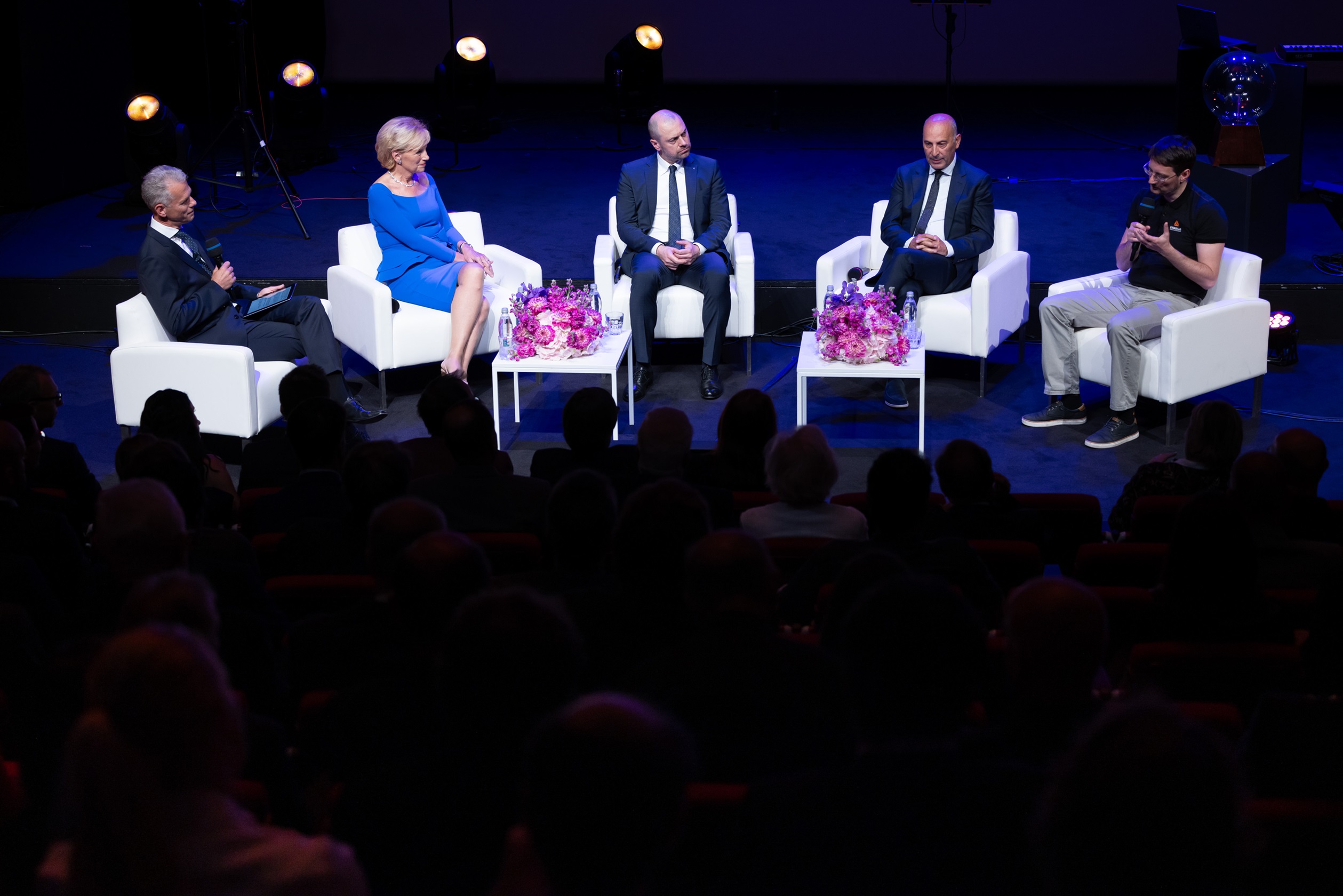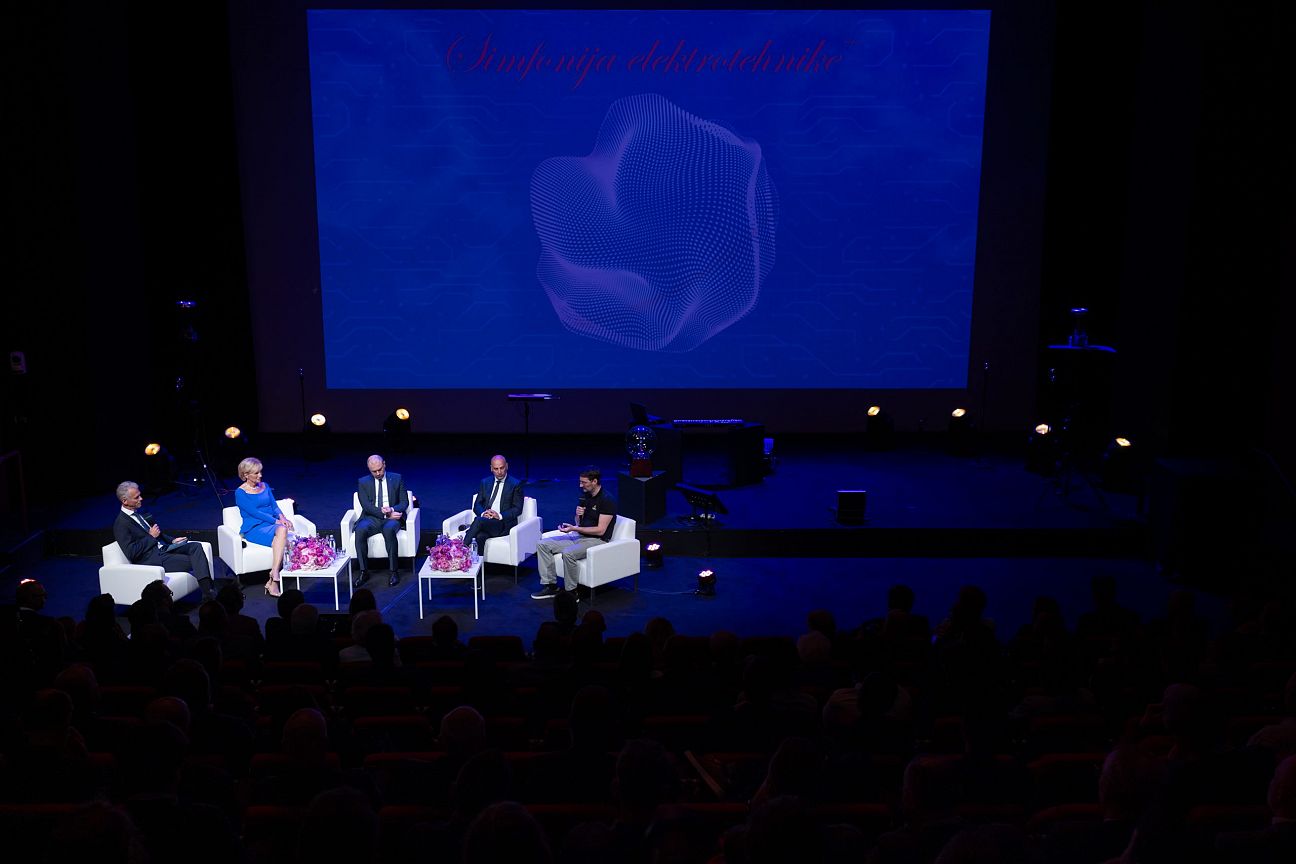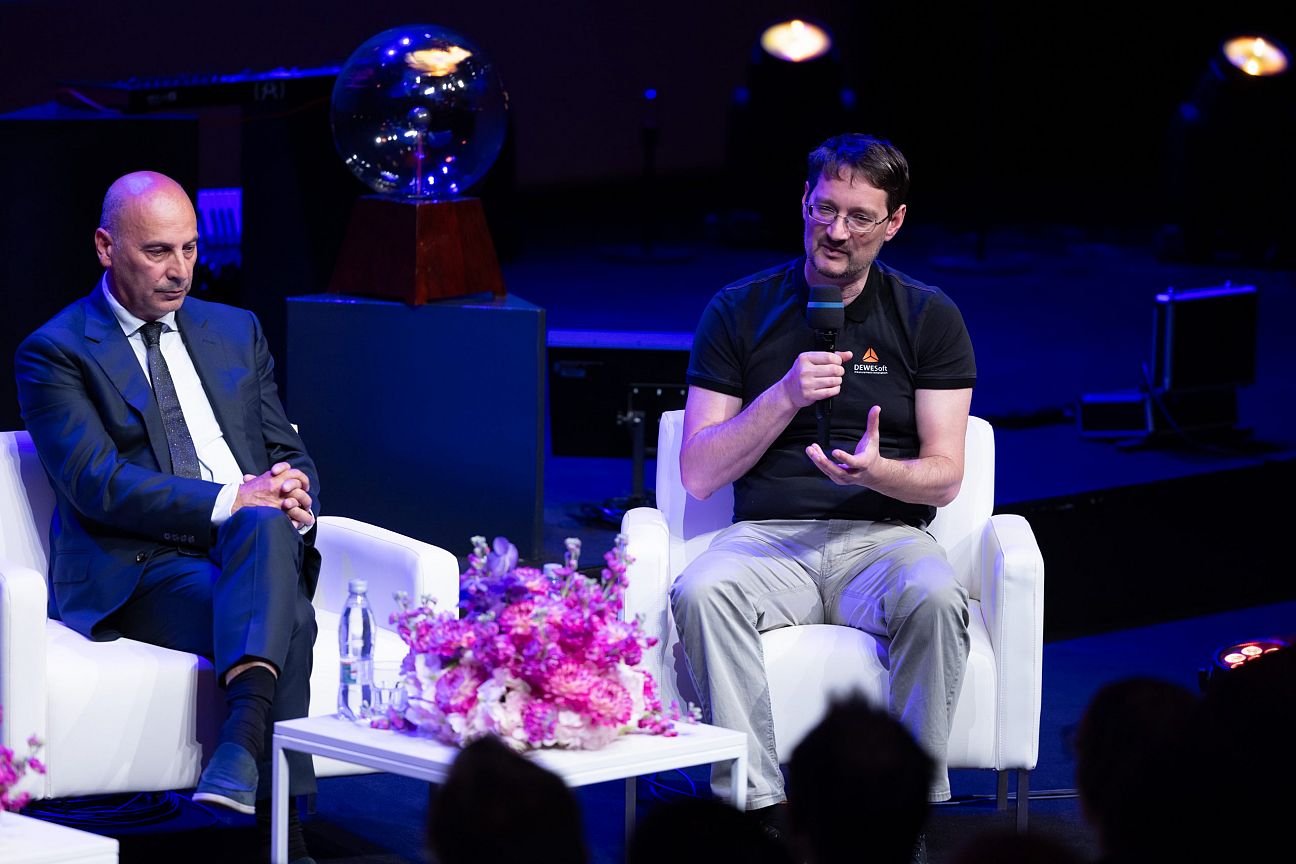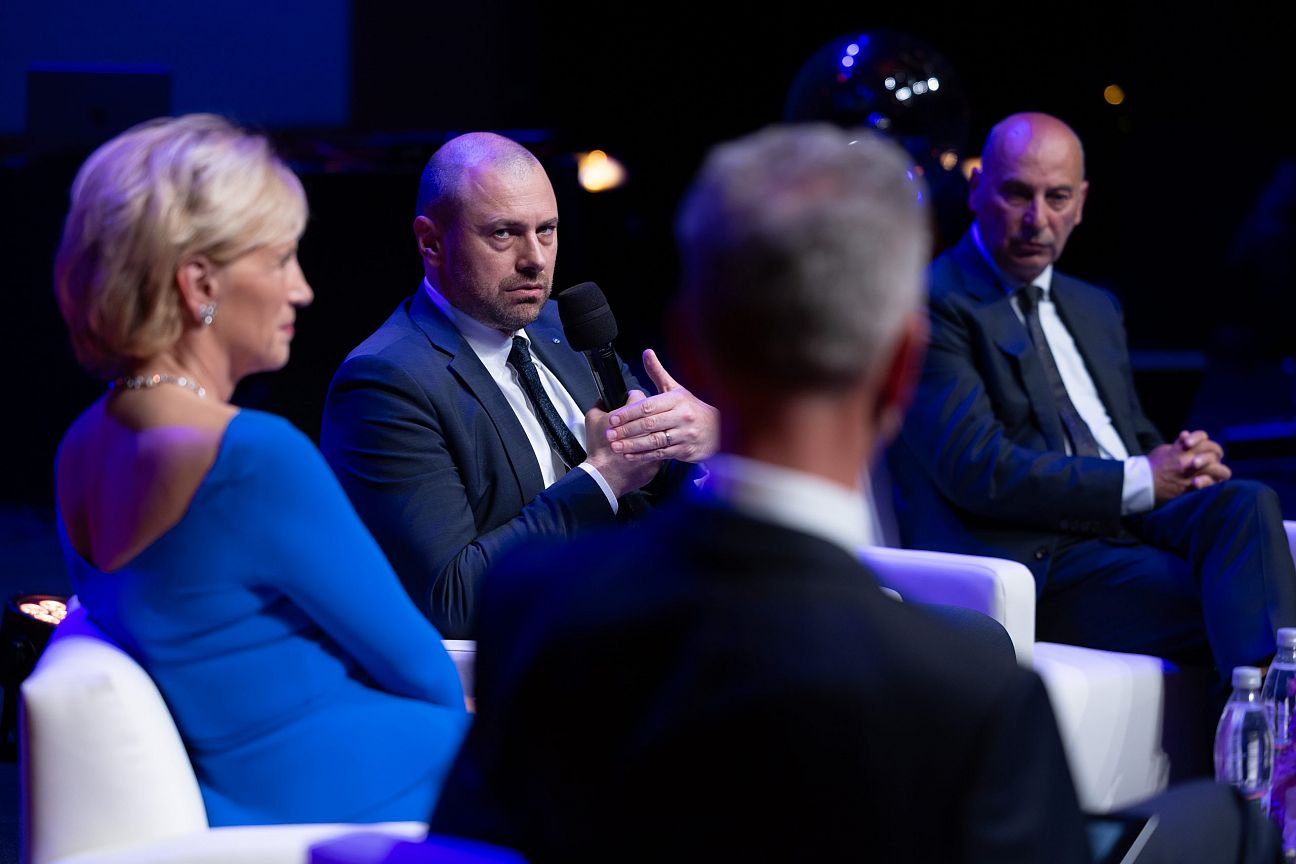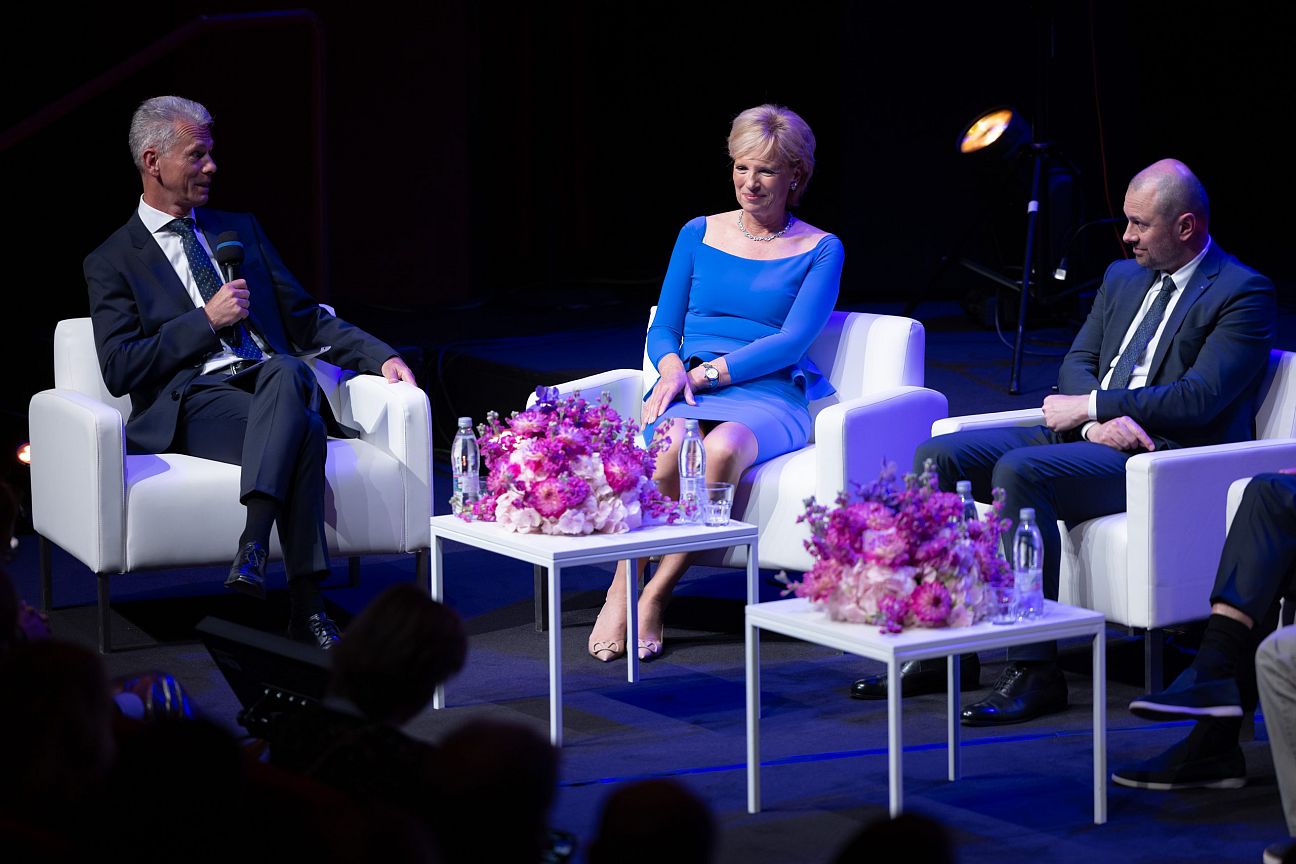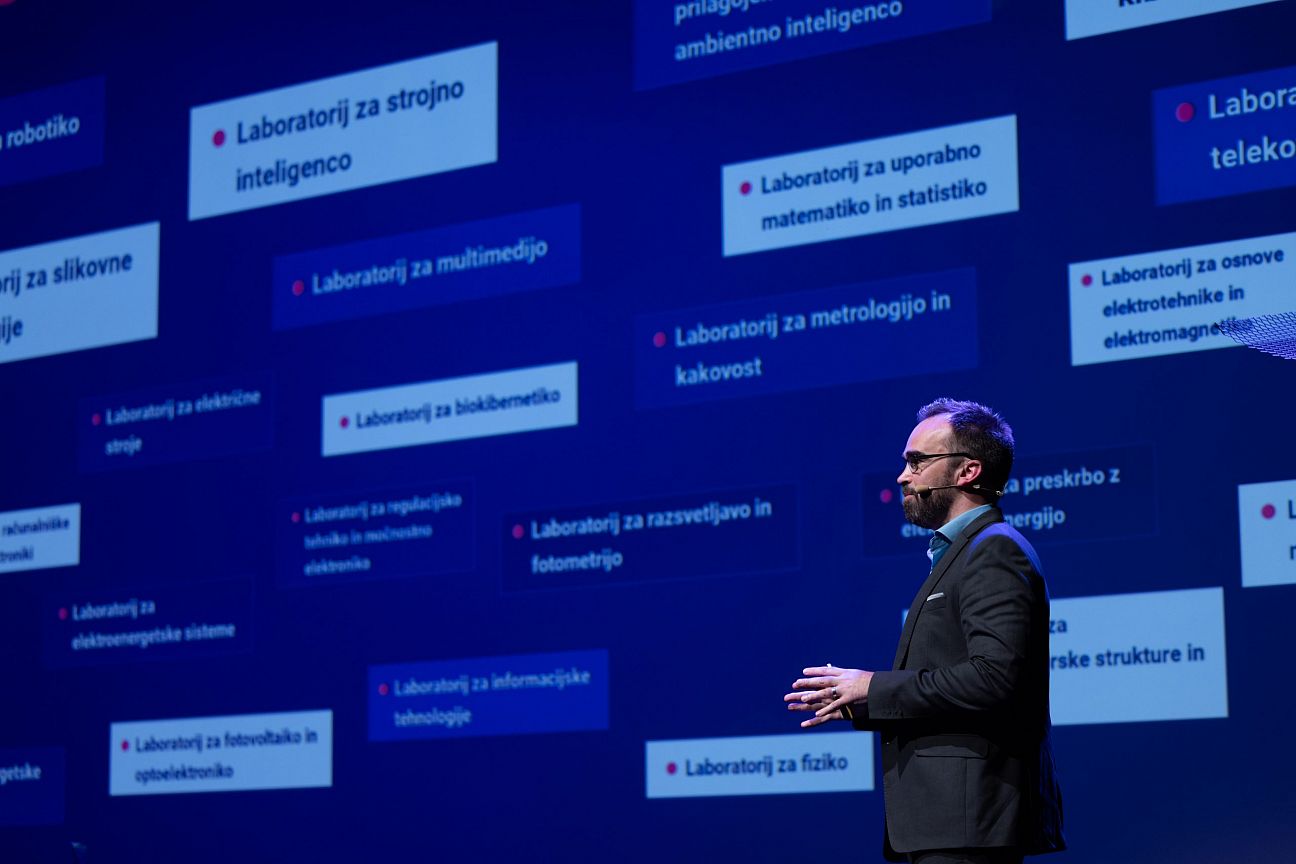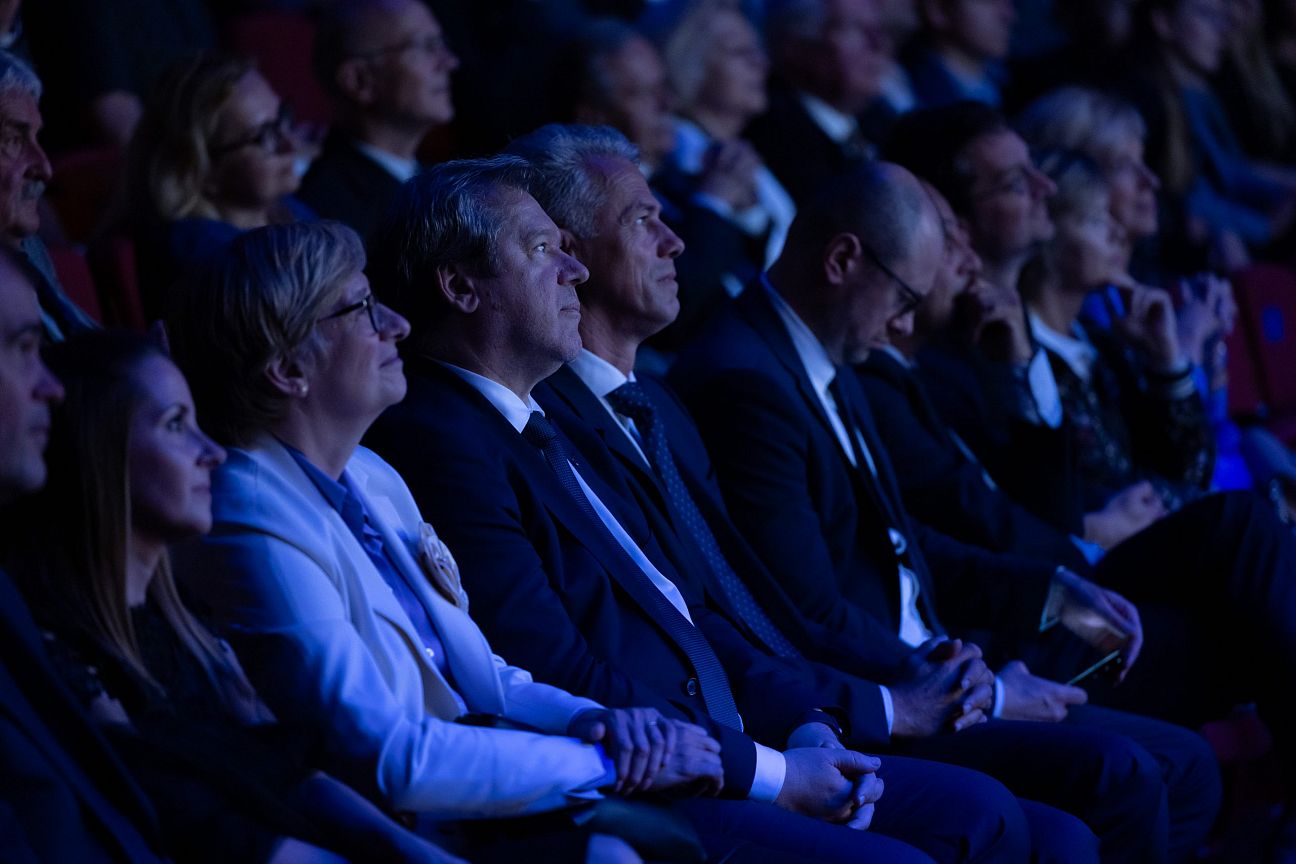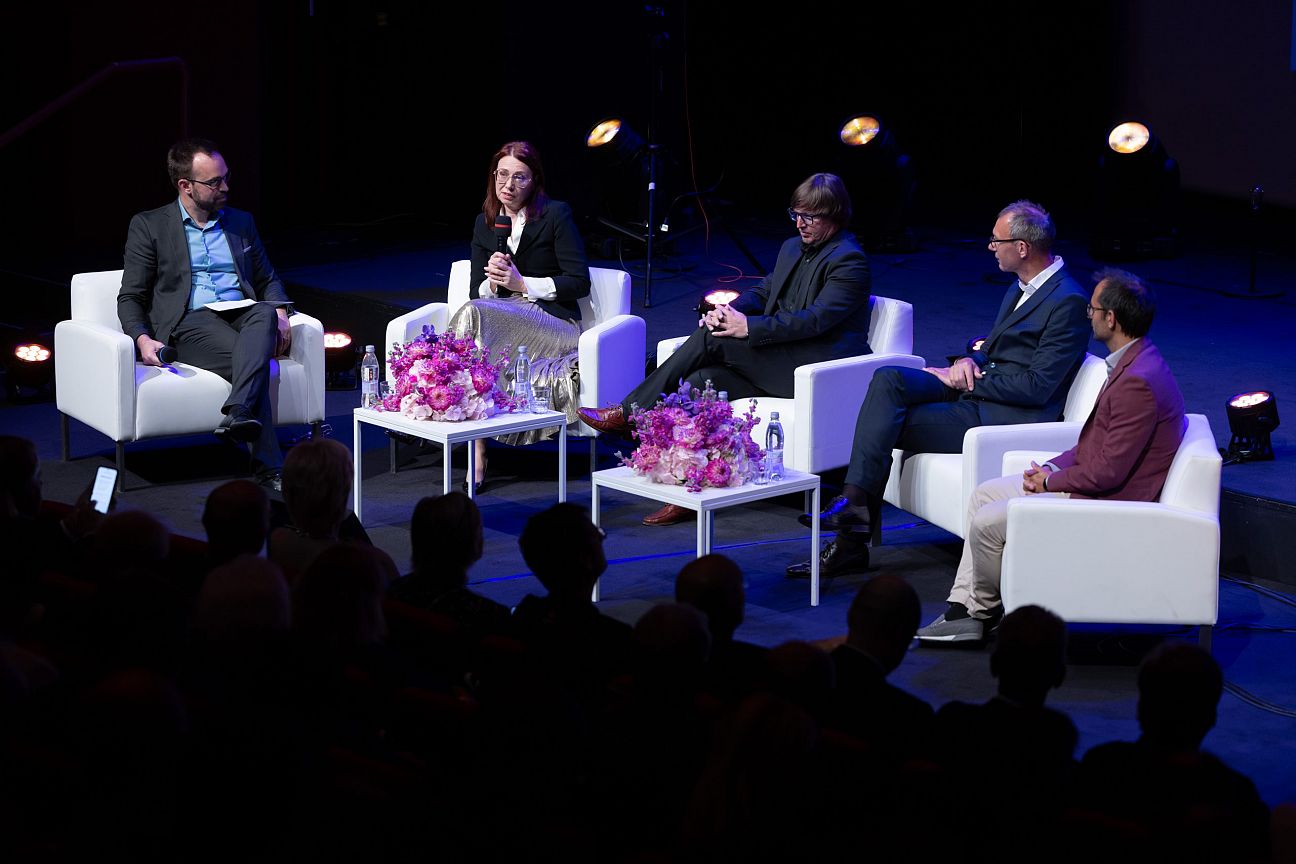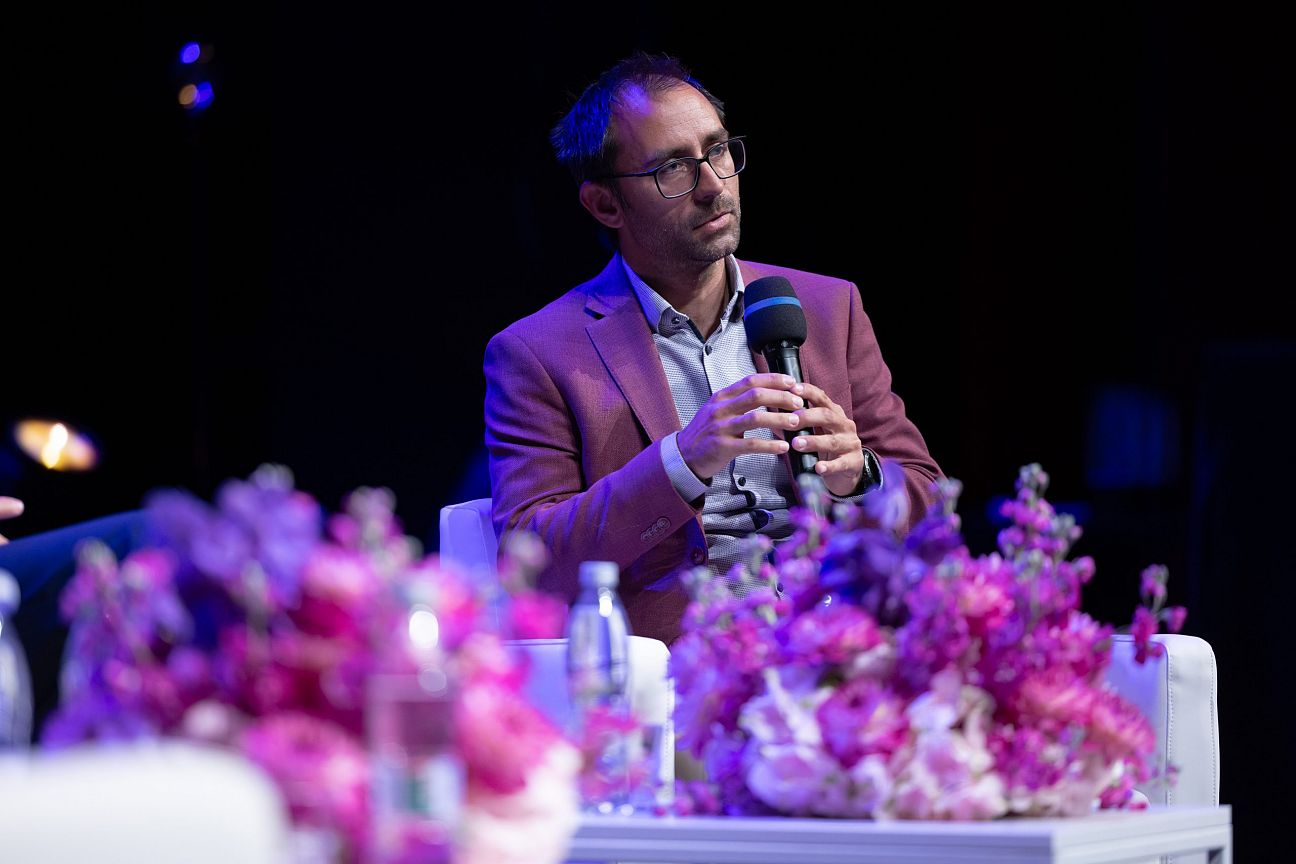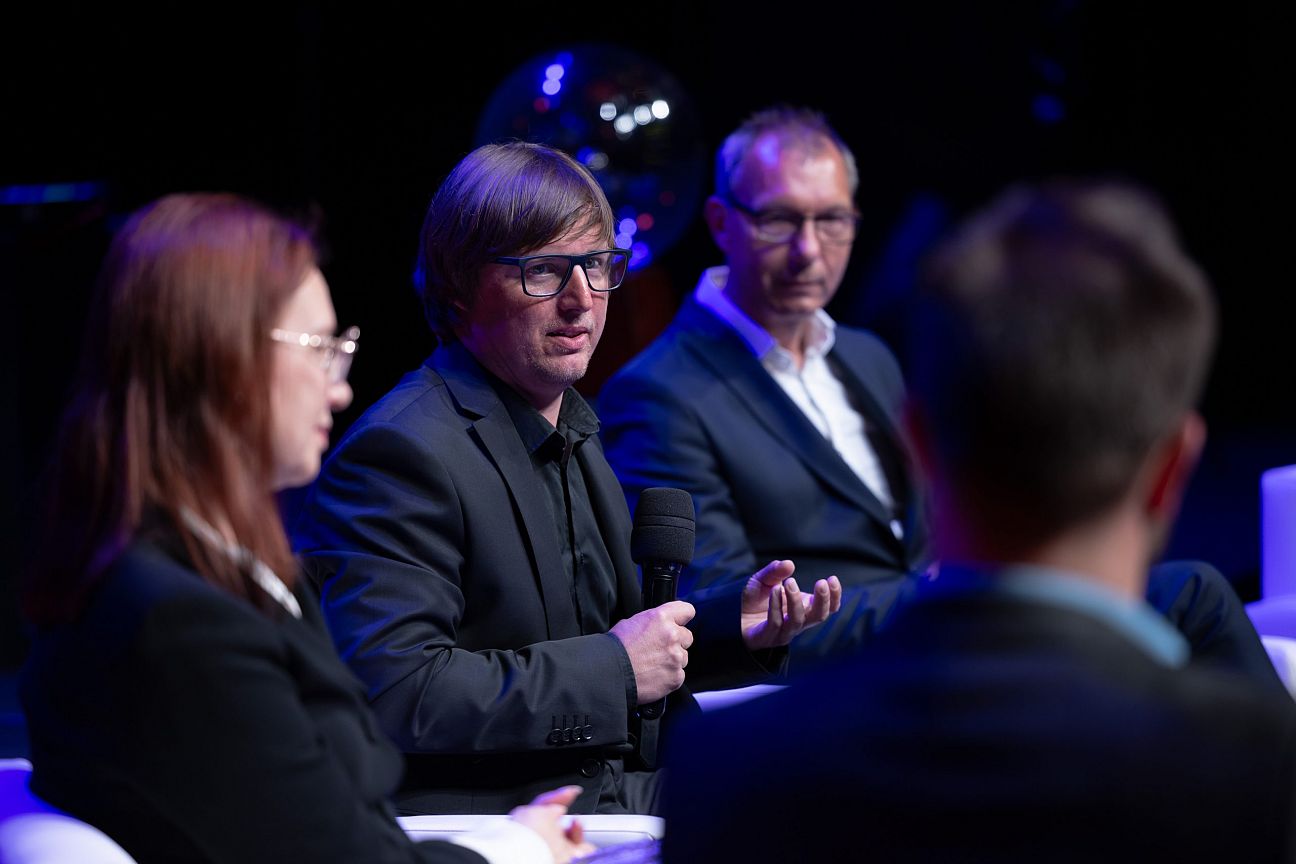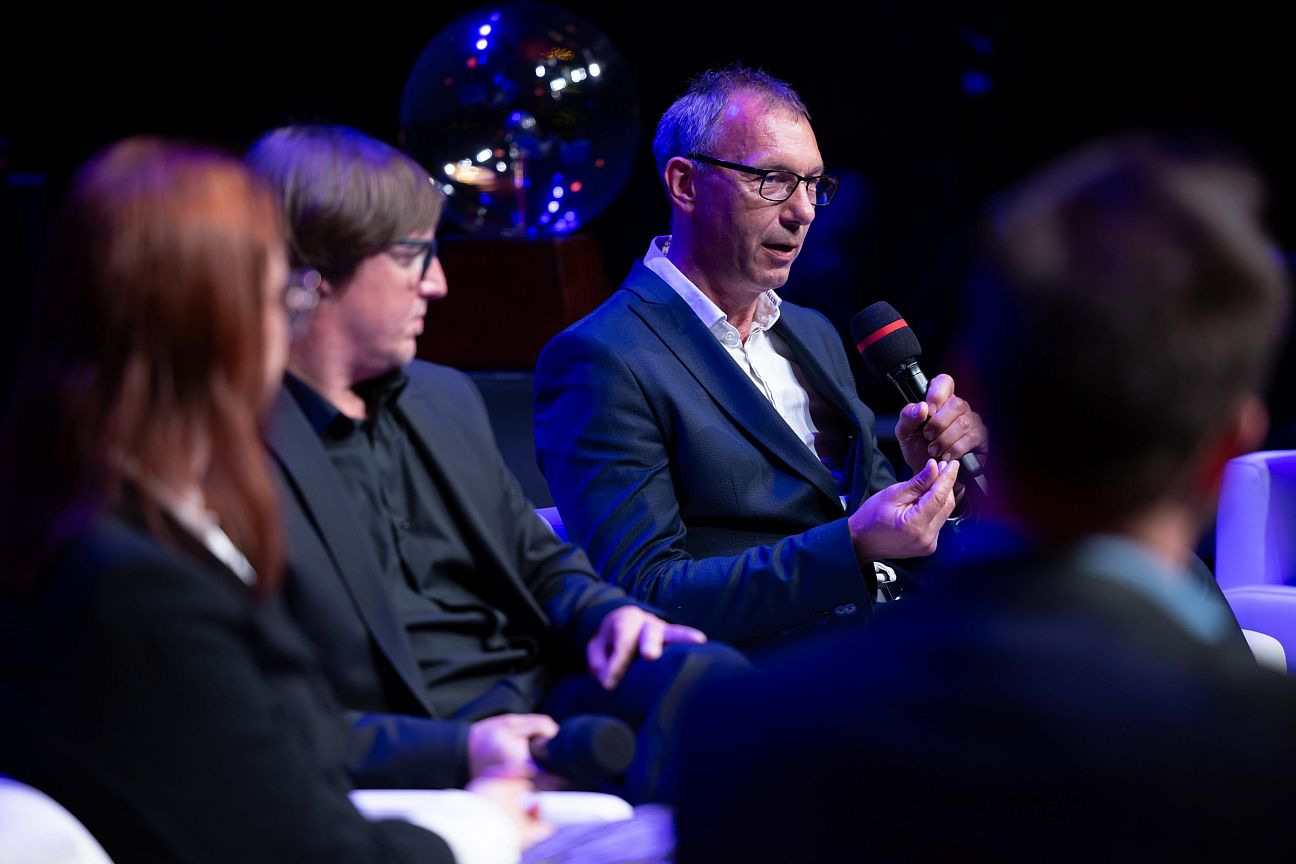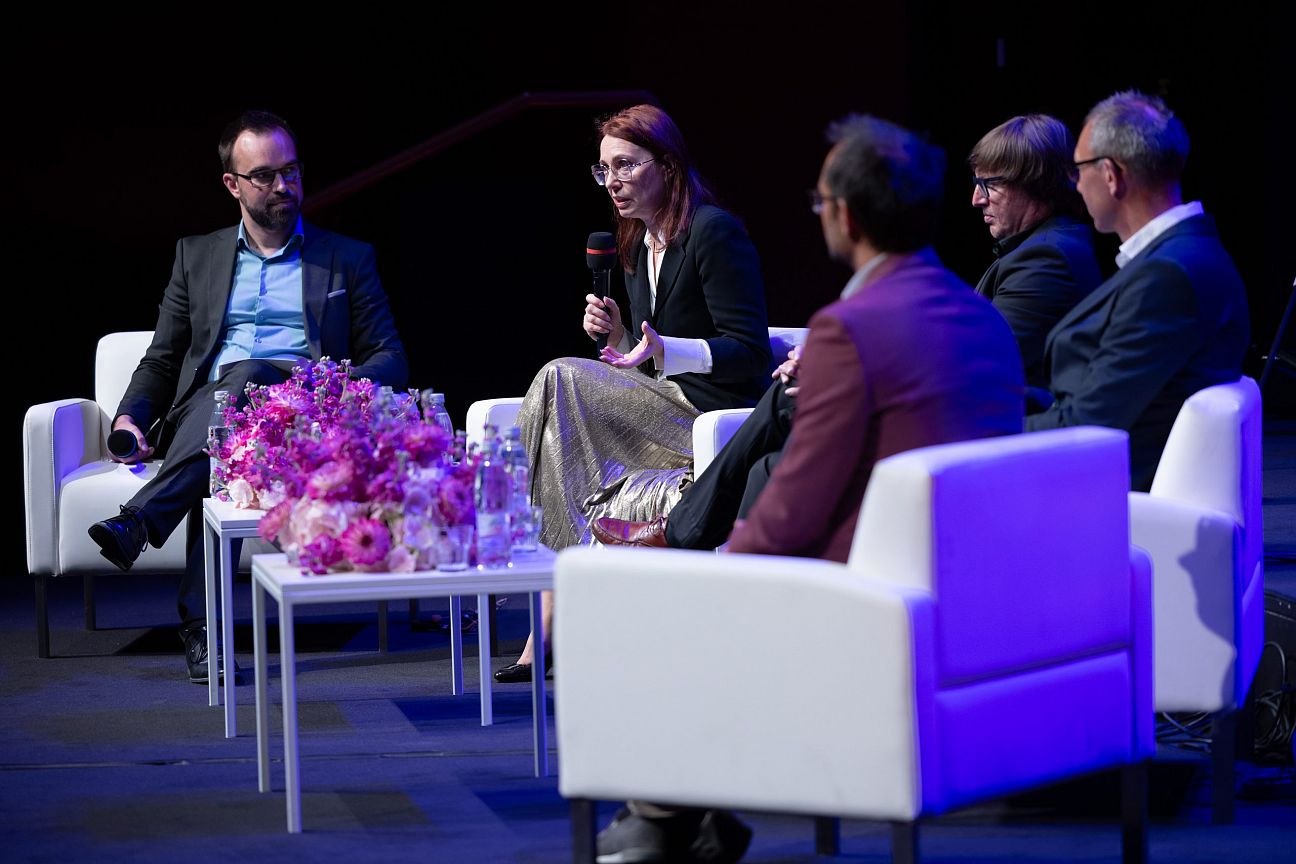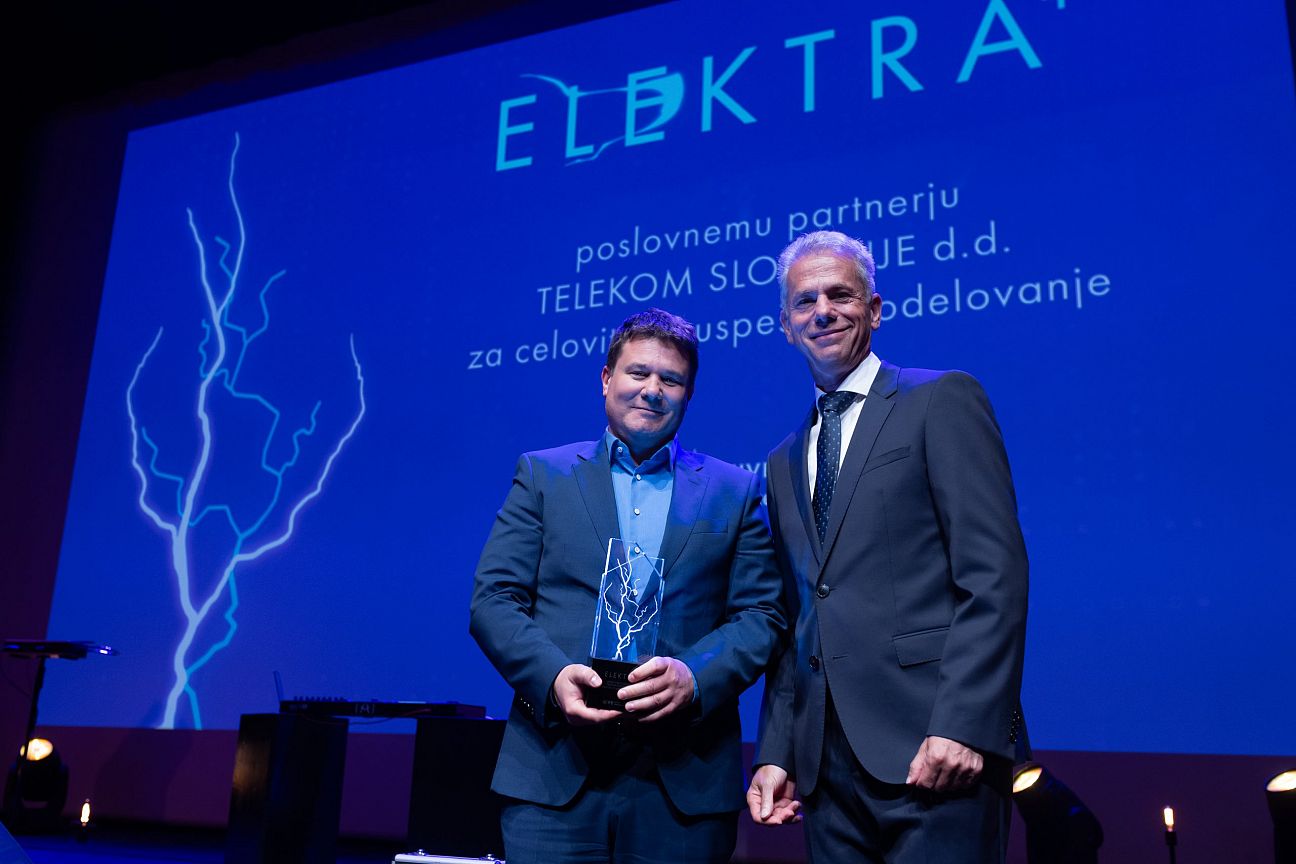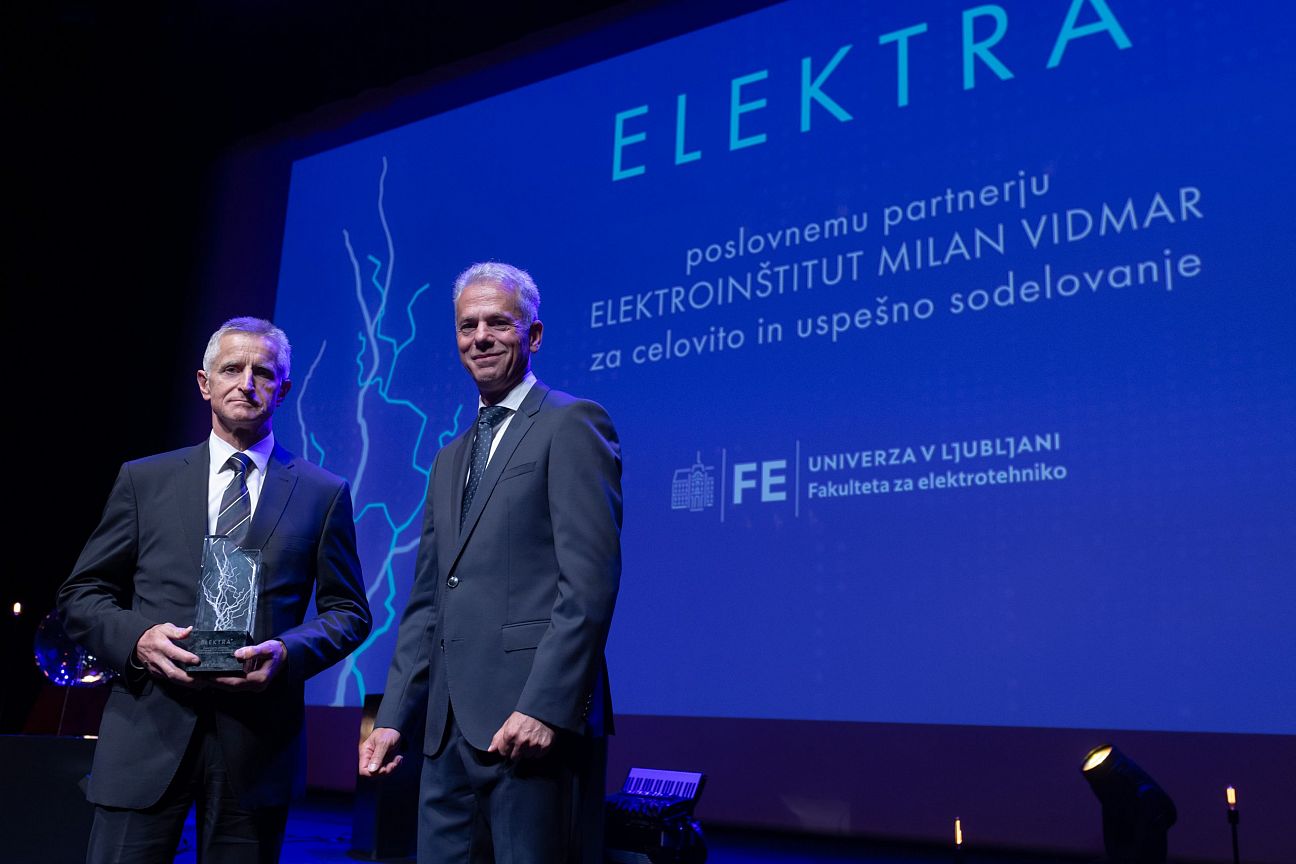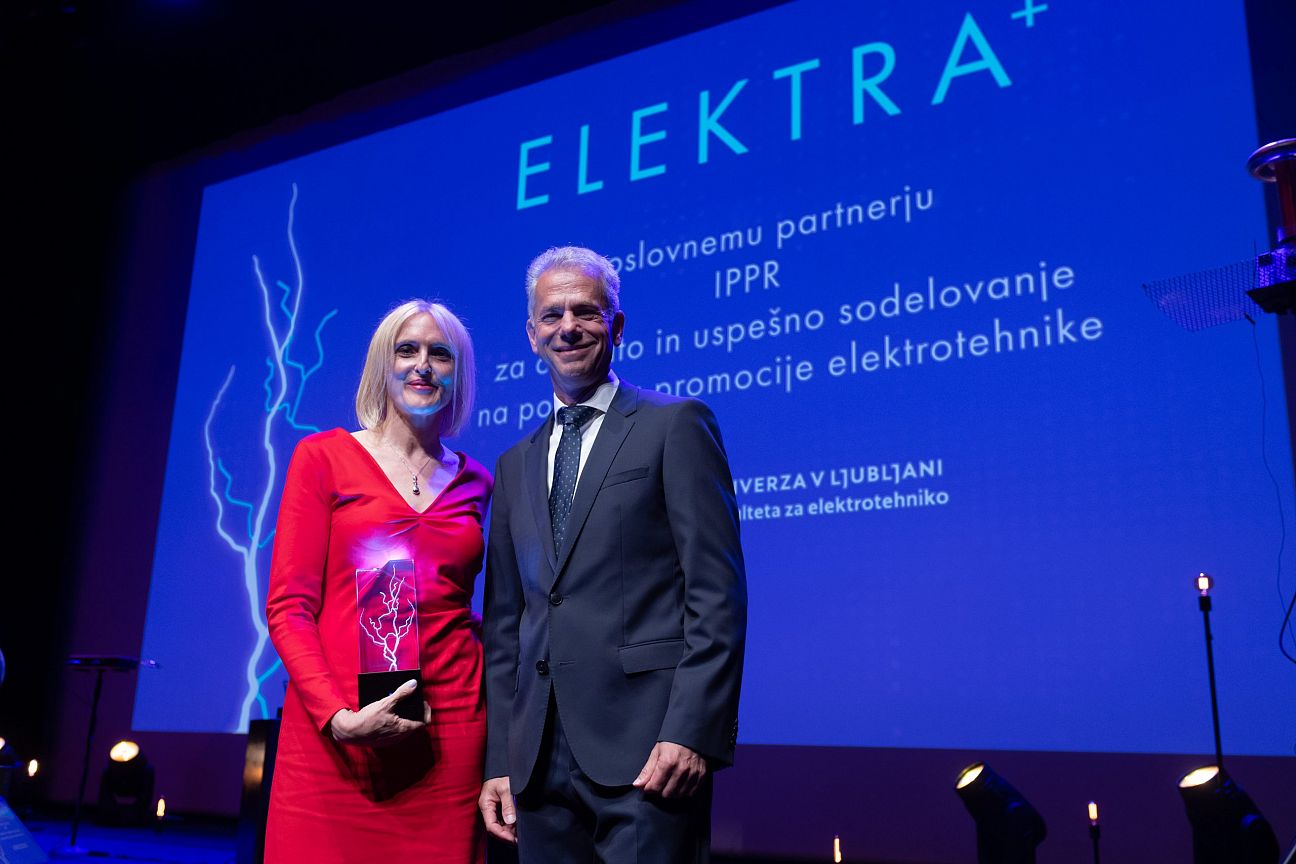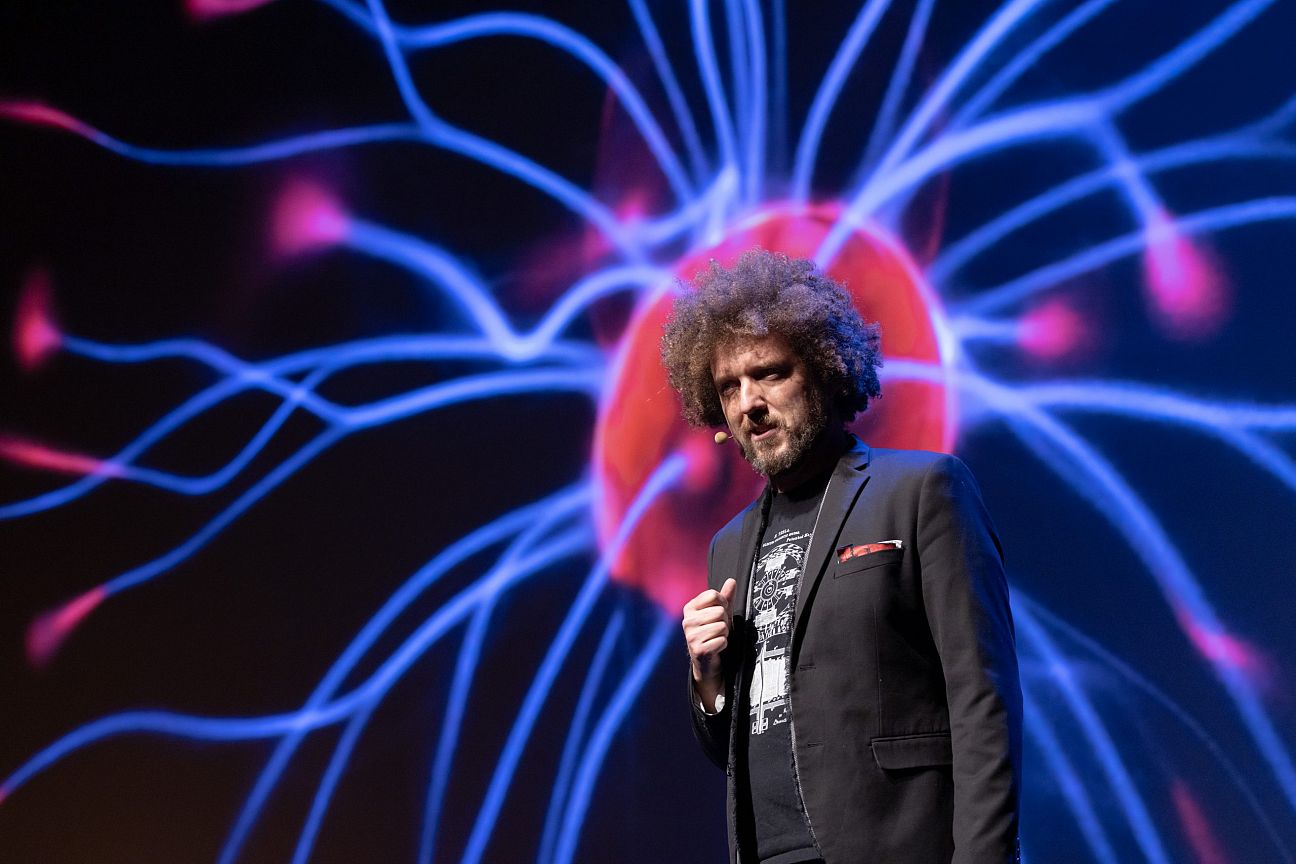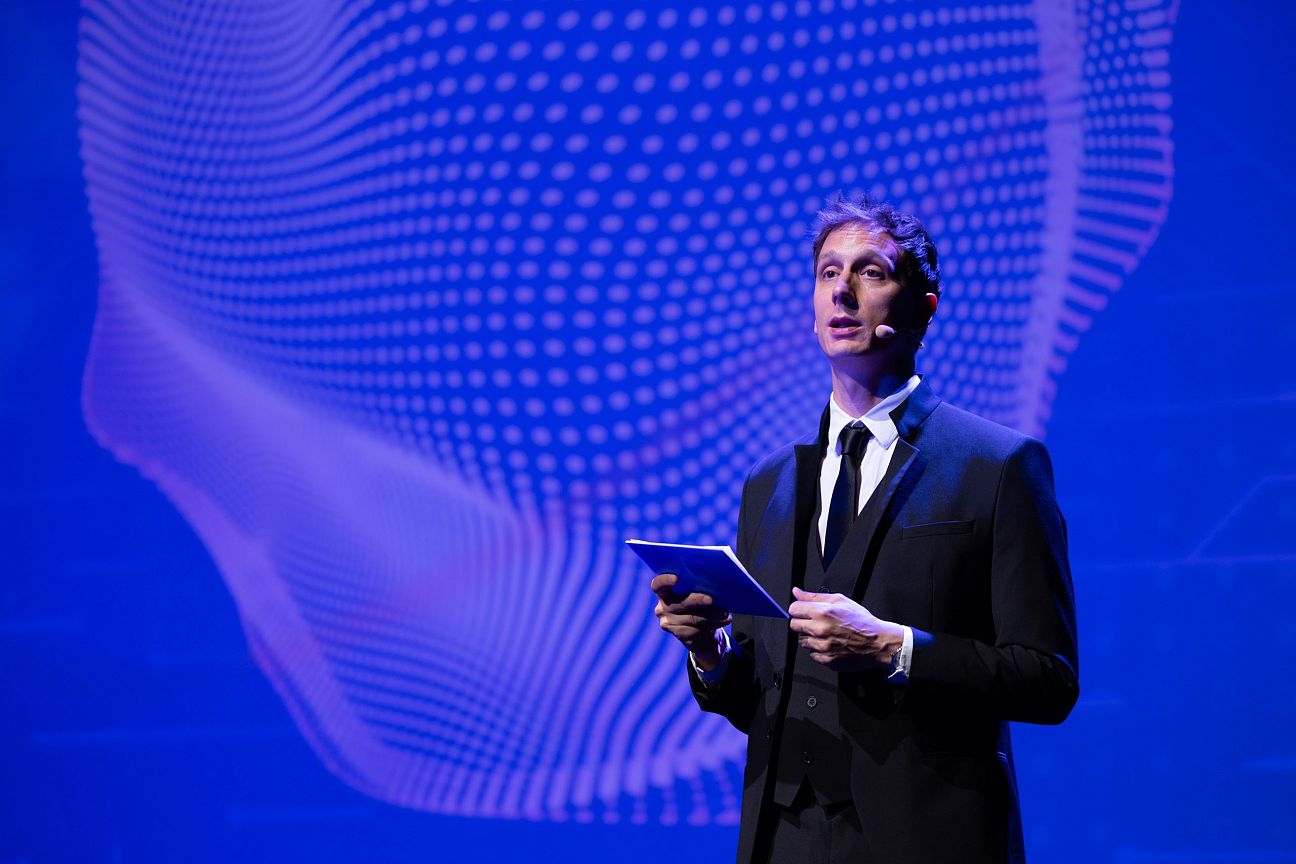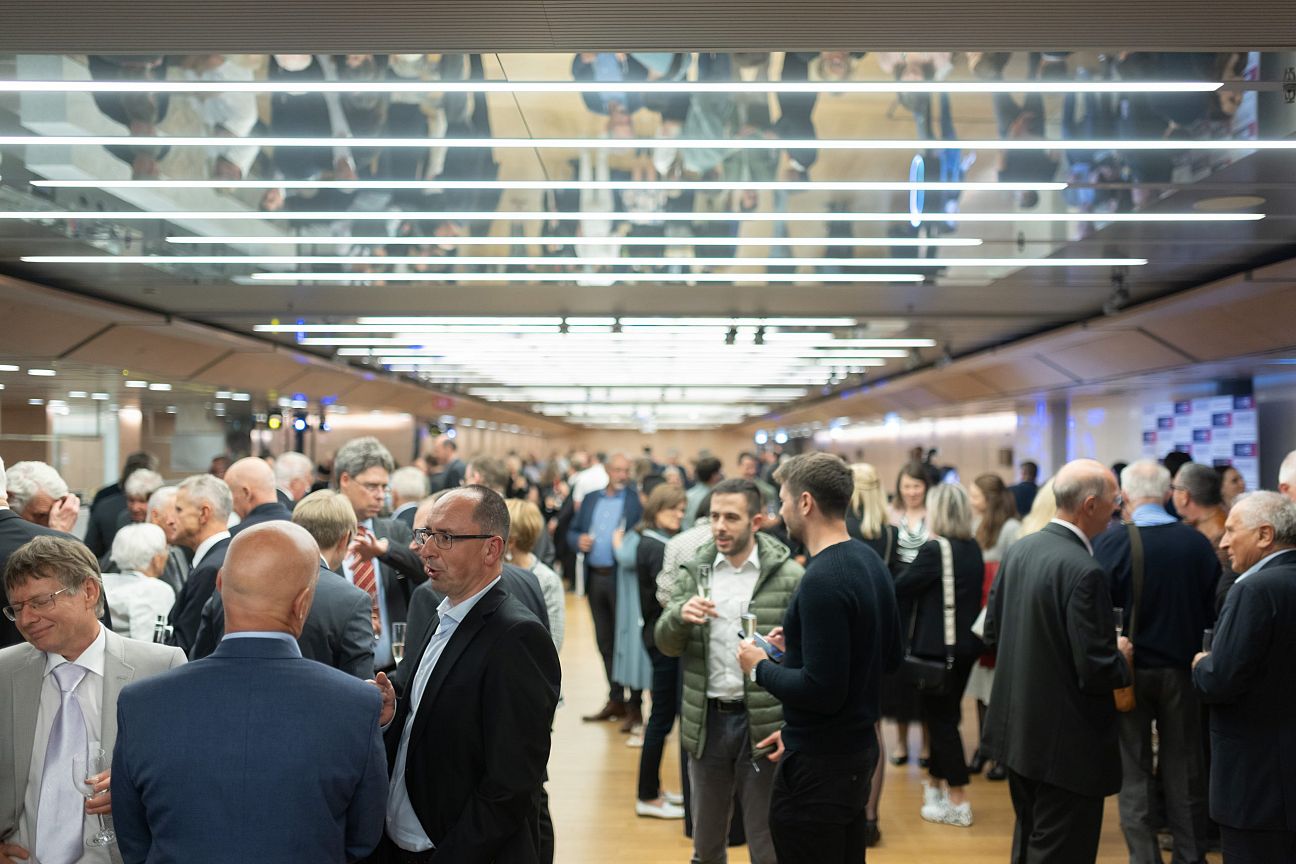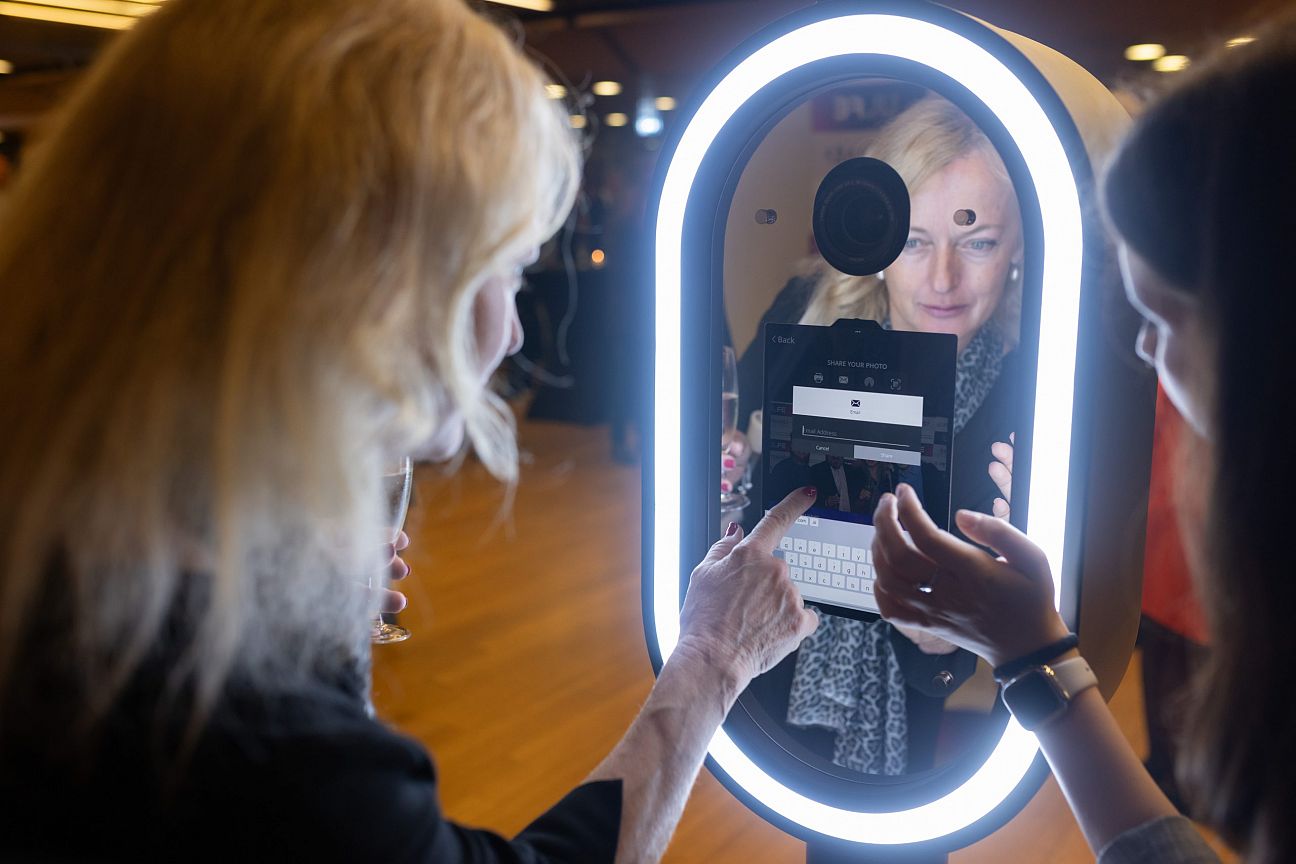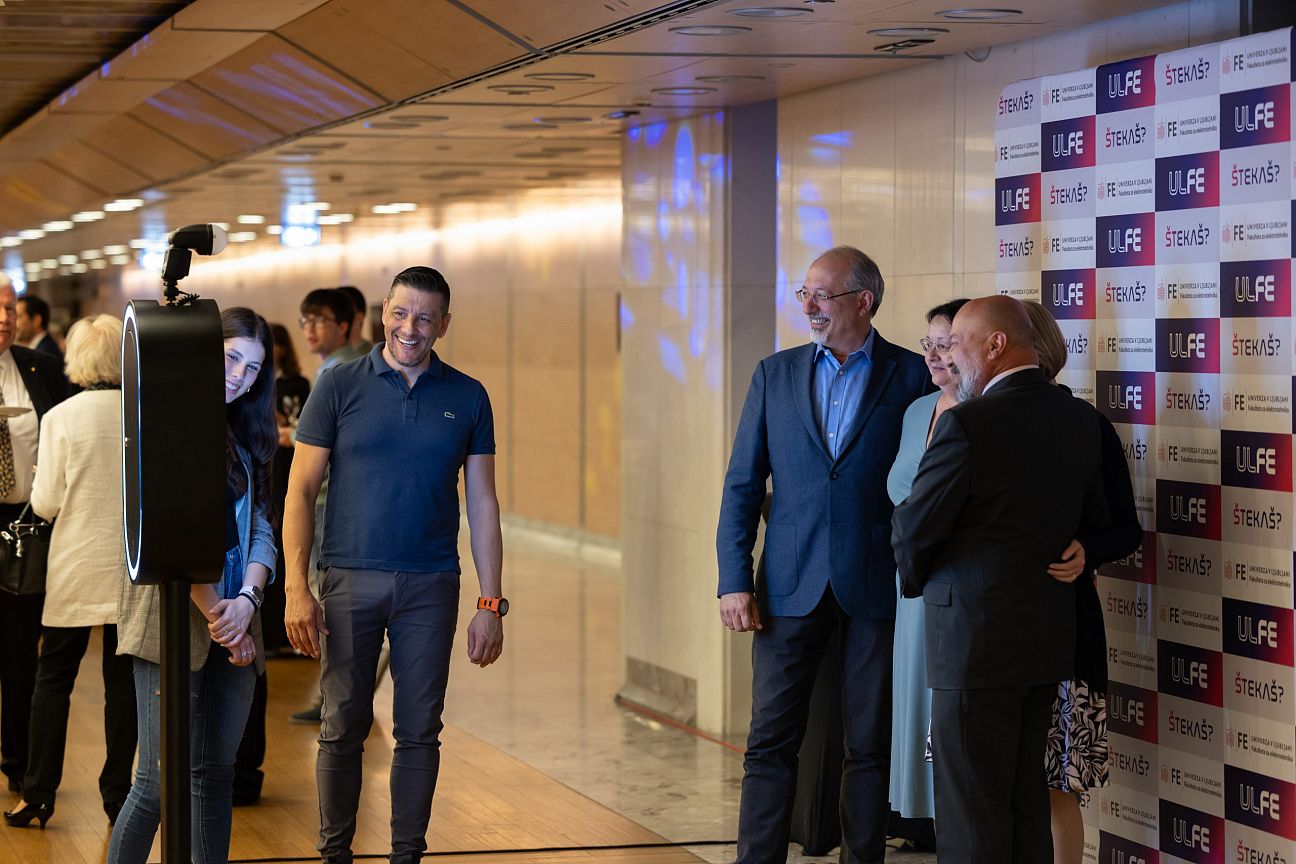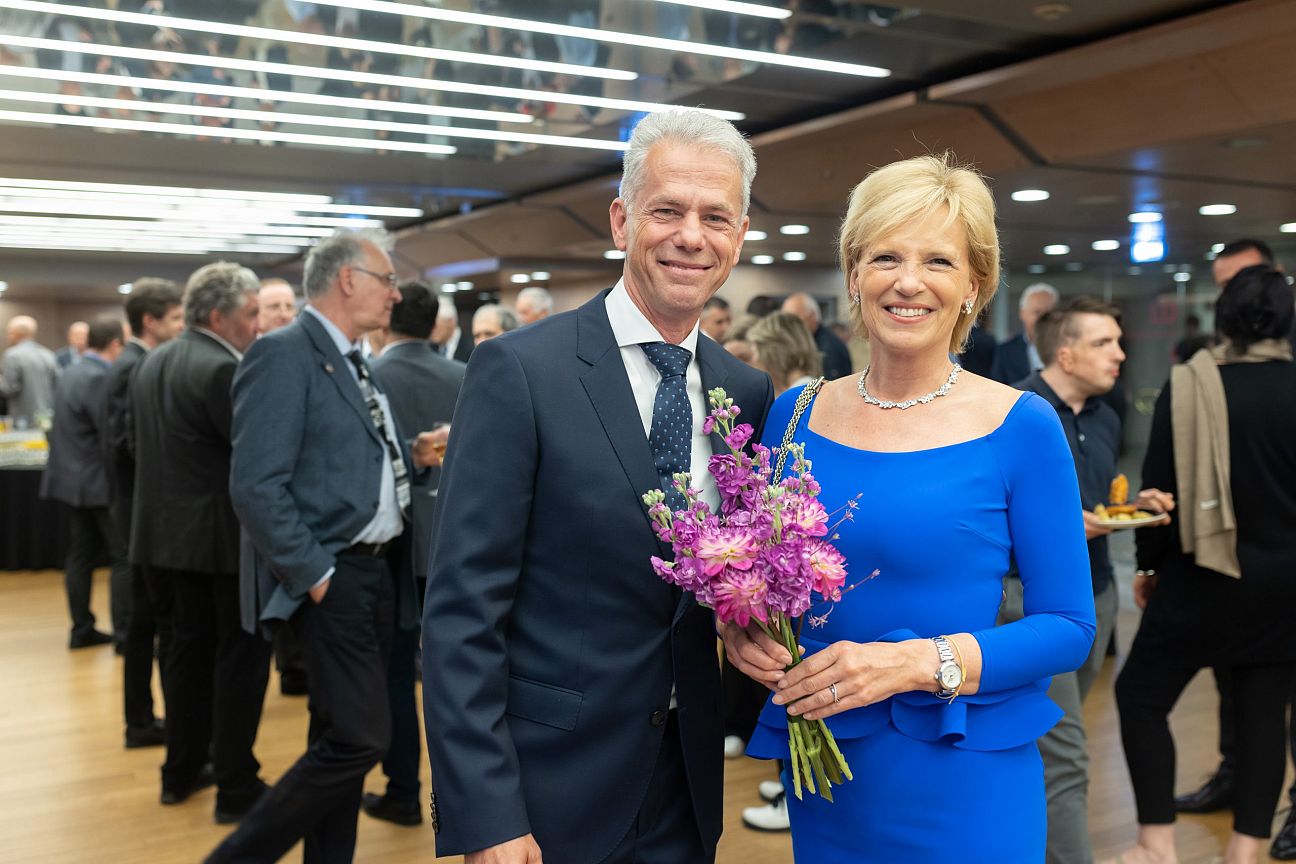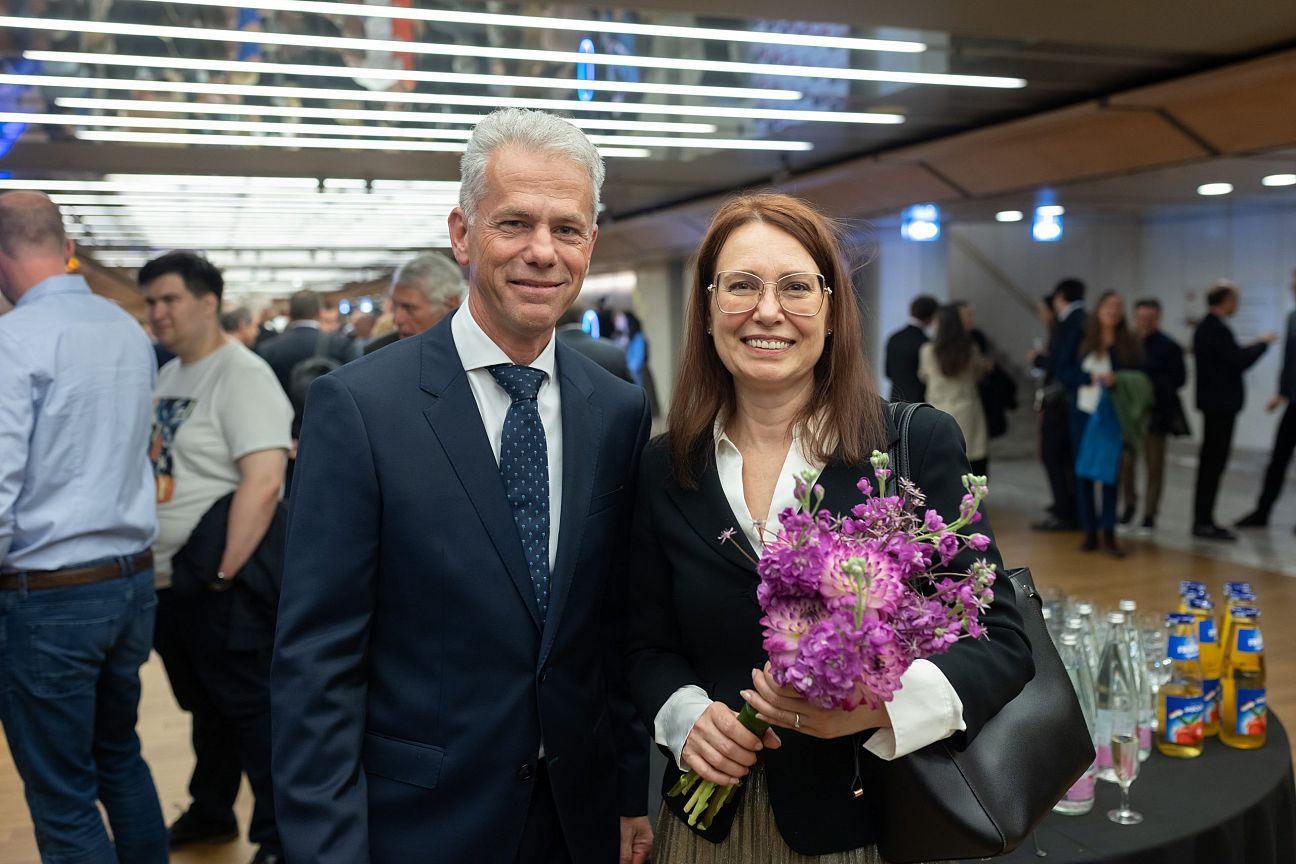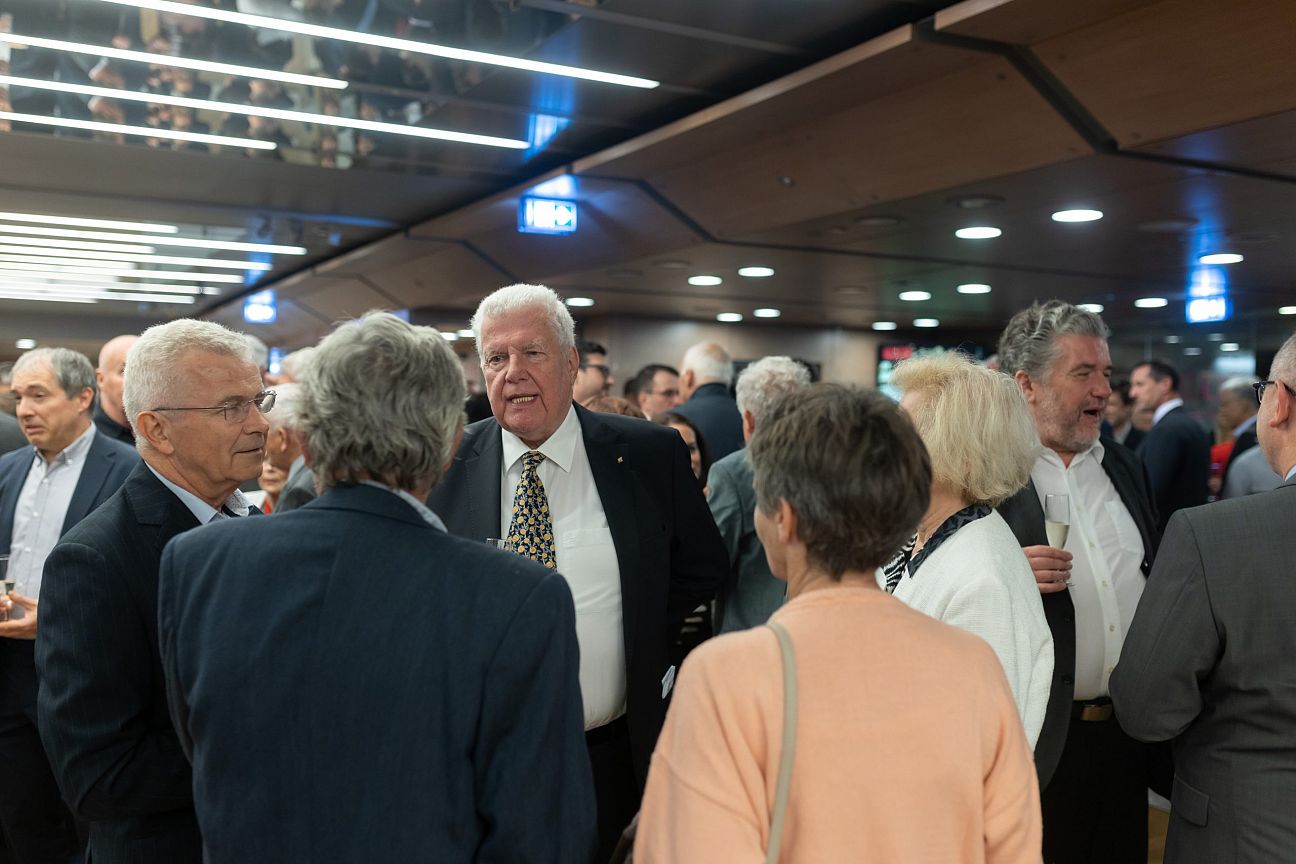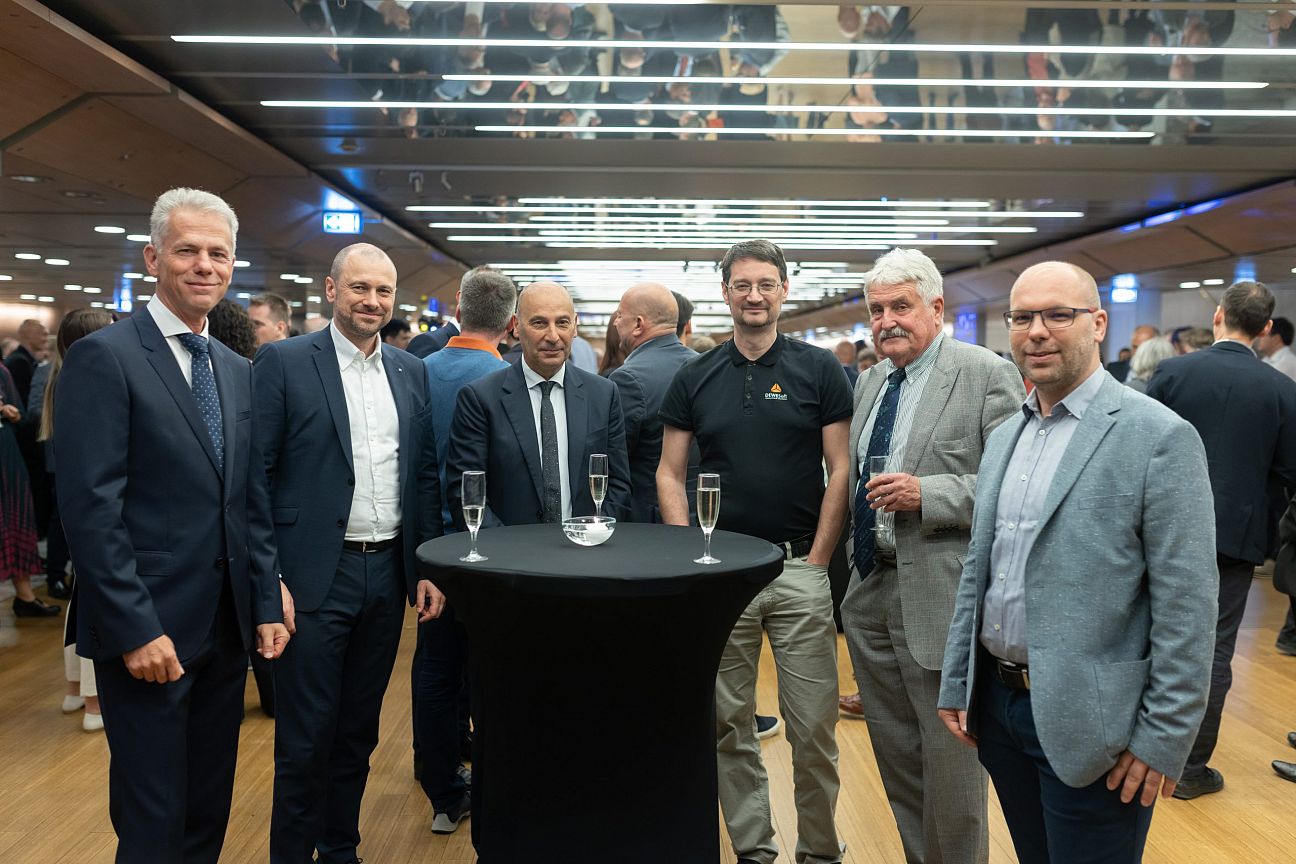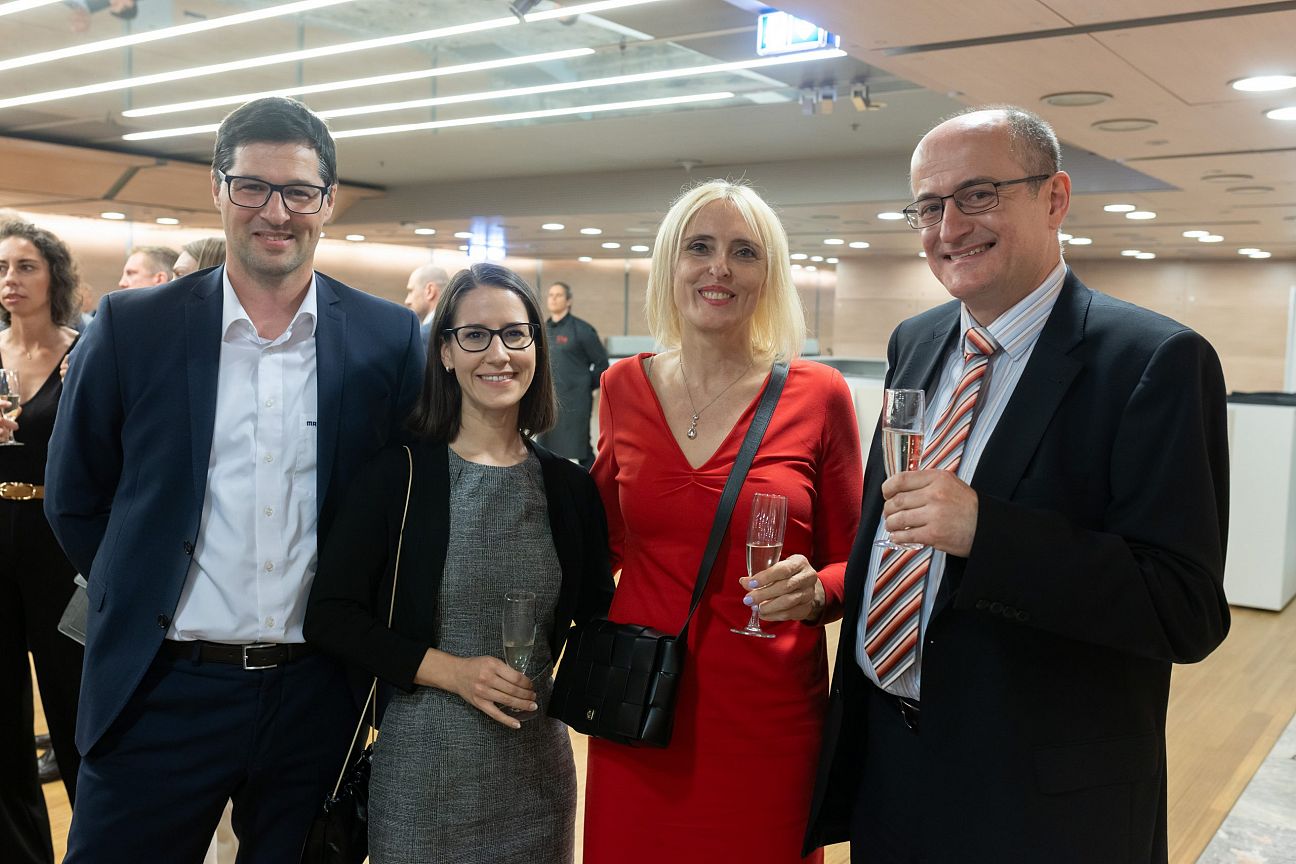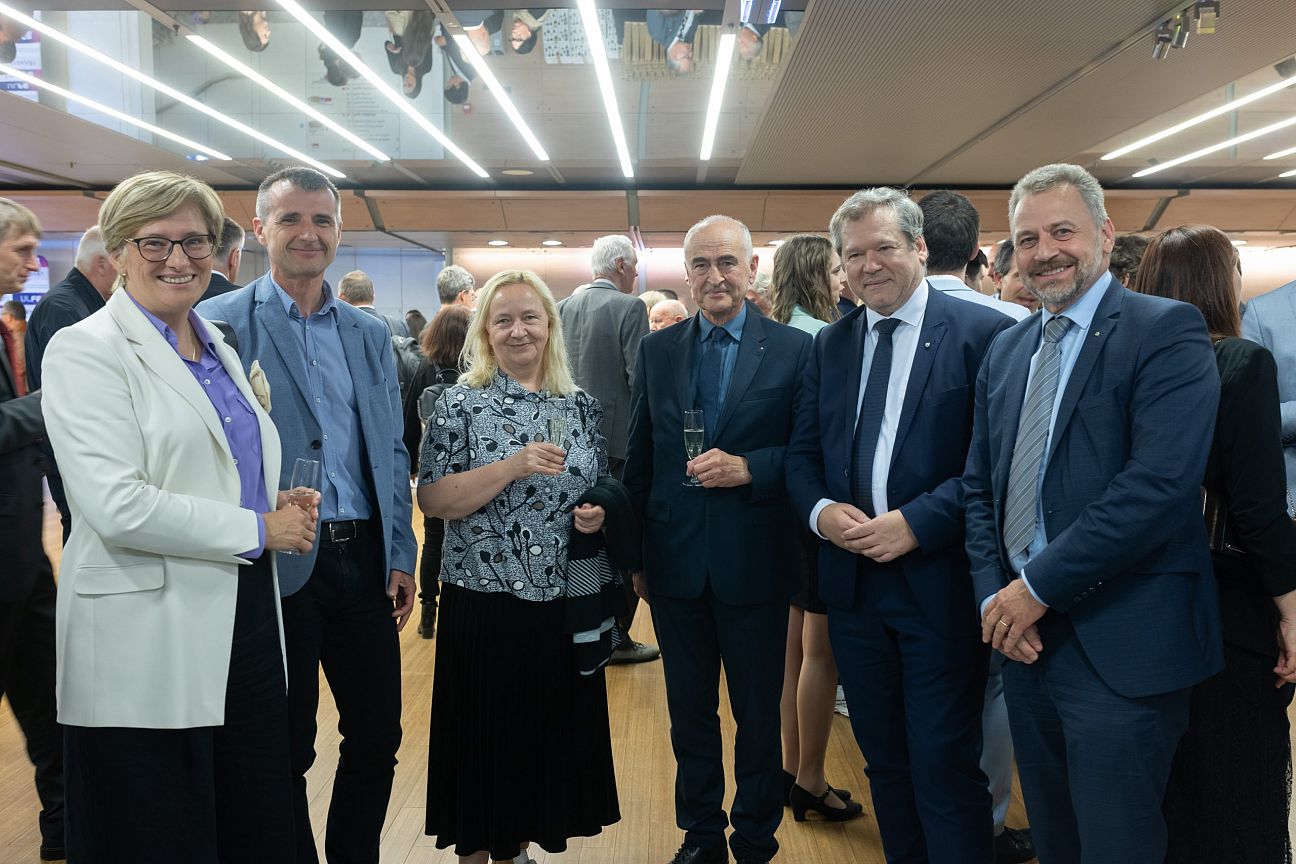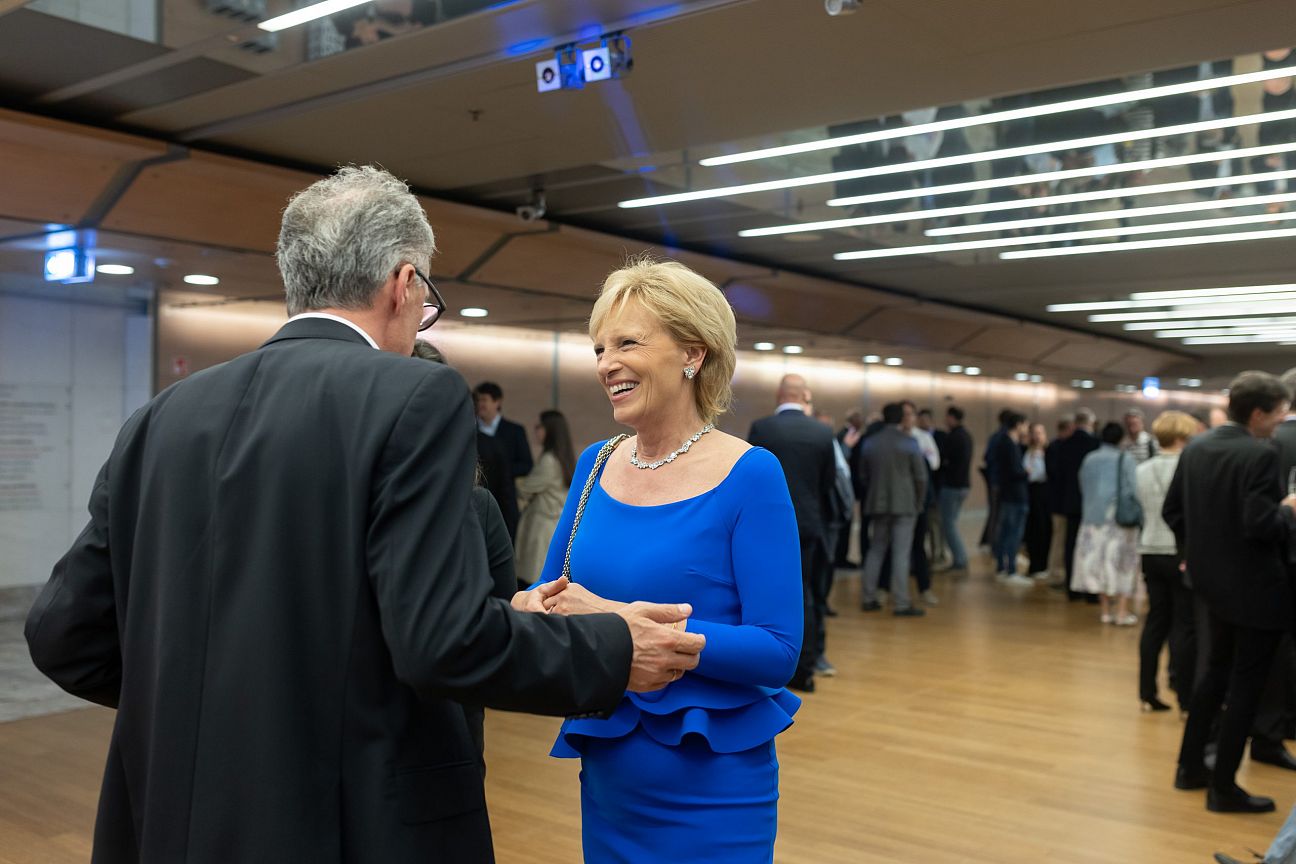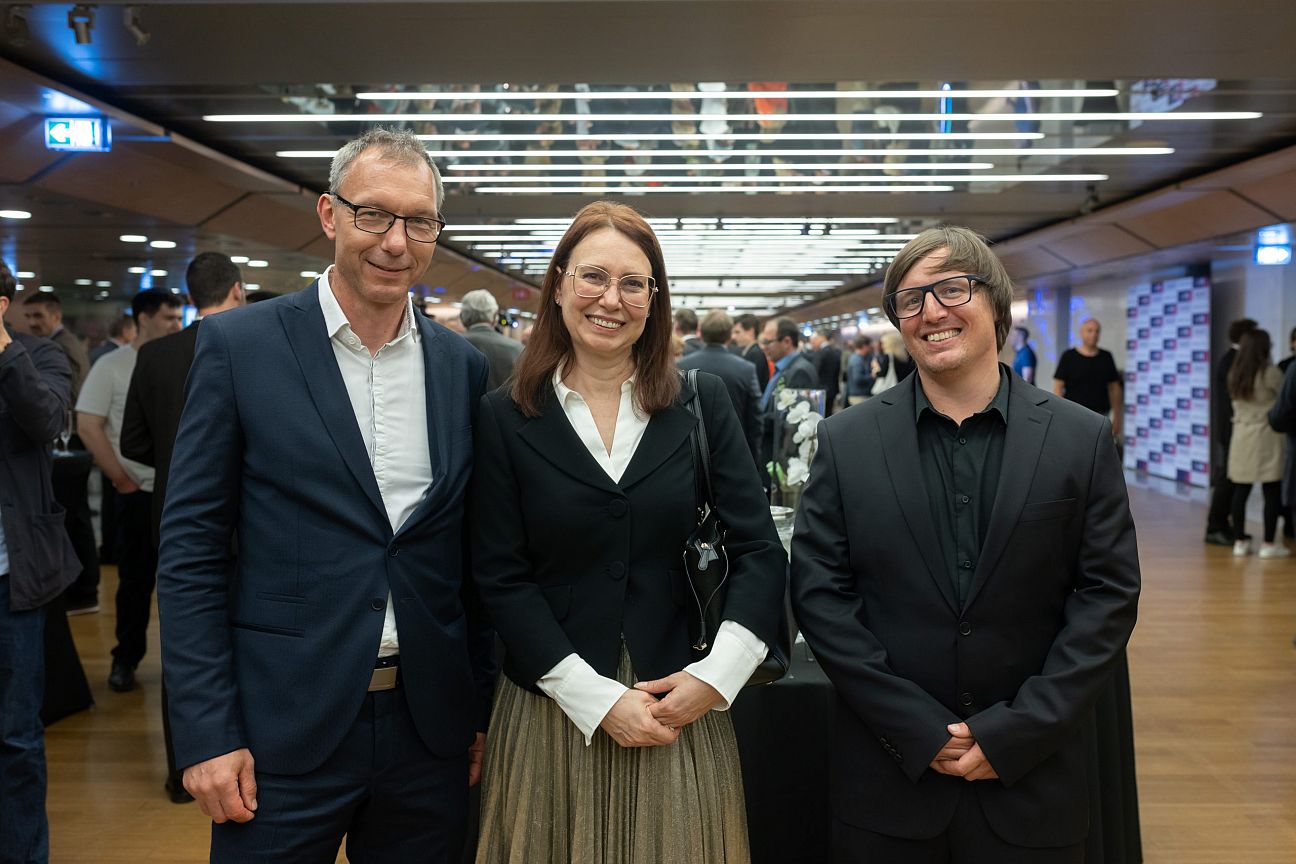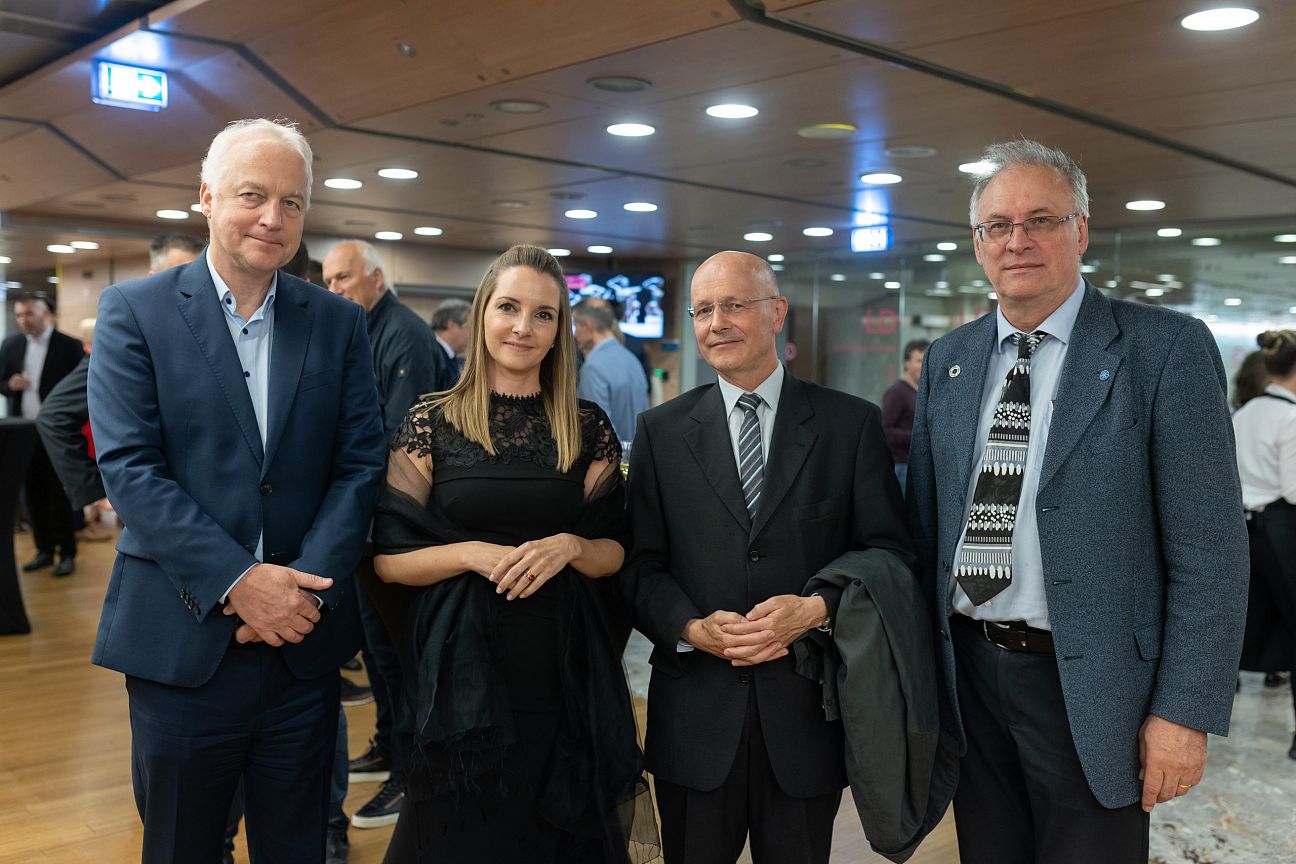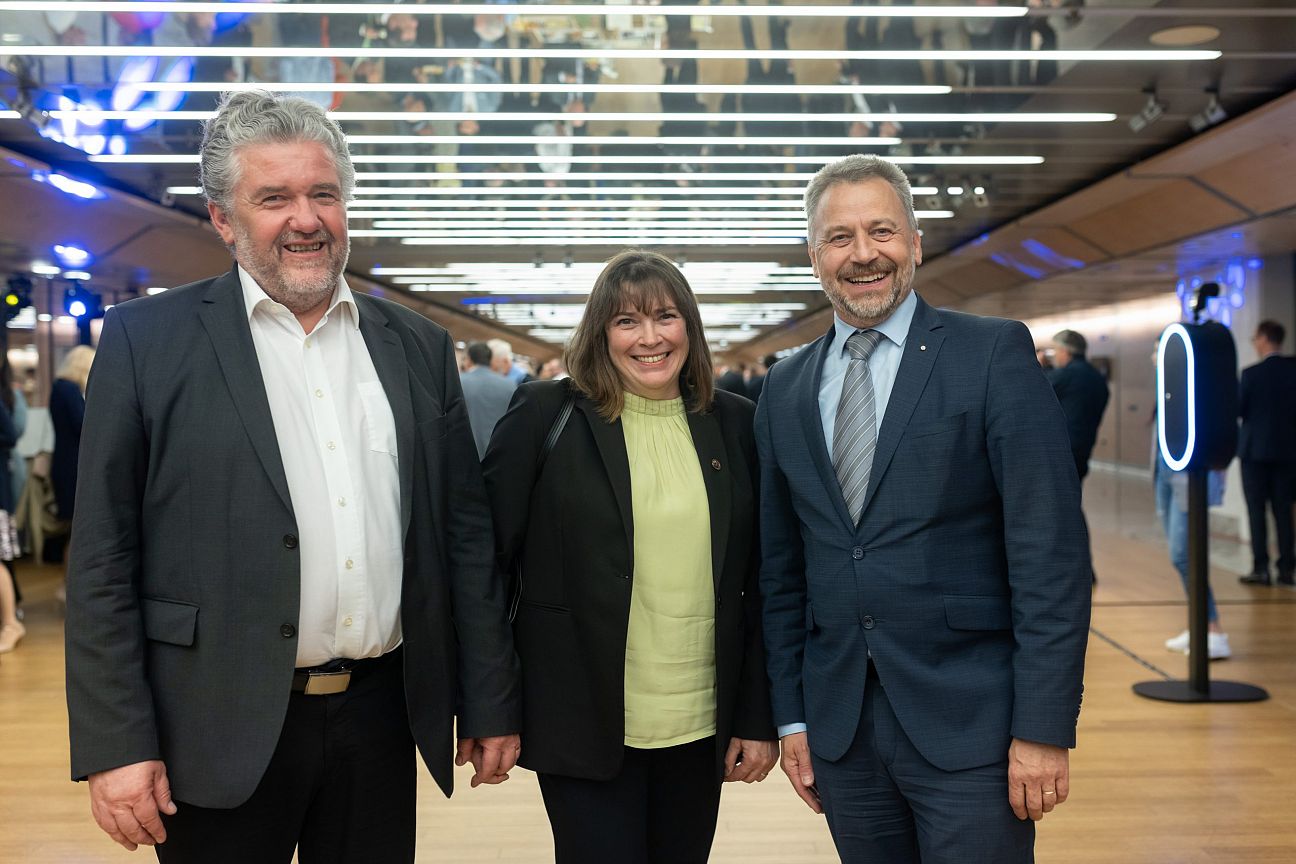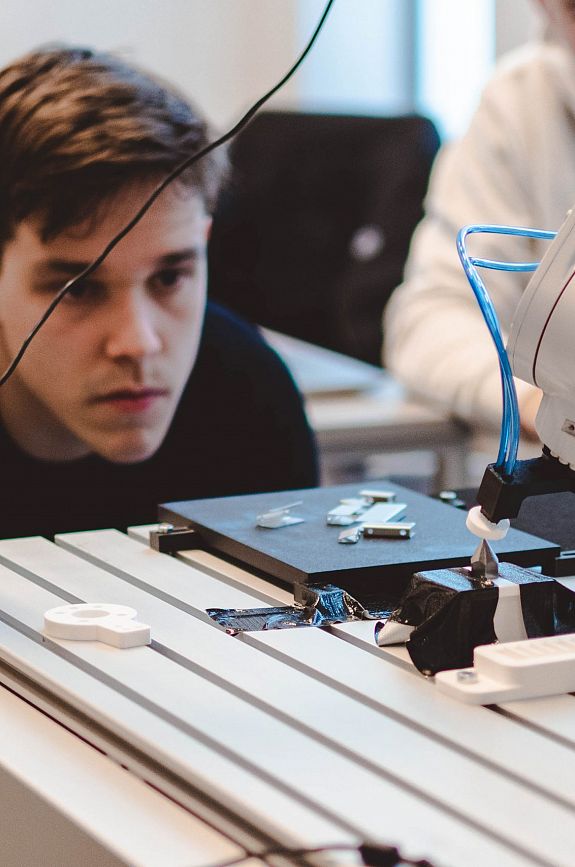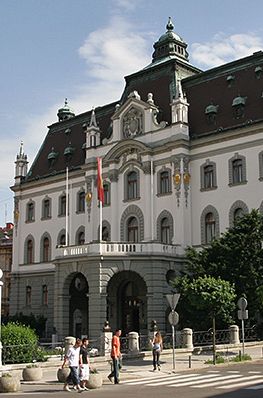Symphony of Electrical Engineering+
Datum objave: 1.7.2024Connecting the academic sphere and the economy at the central annual event of the Faculty of Electrical Engineering UL
The central annual event of the Faculty of Electrical Engineering of the University of Ljubljana (UL FE) was held in the Linhart hall of Cankarjev dom, which was called the Symphony of Electrical Engineering+. At the event coordinated by Jurij Drevenšek, the most prominent representatives of companies, professional associations and the research sphere related to electrical engineering gathered, who emphasized the all-round importance and contribution of engineering, especially electrical engineering, in modern society. The central theme of the event was the challenges, opportunities and future of the use of artificial intelligence in education, research, development and industry.
At the beginning, the dean of UL FE prof. dr. Marko Topič, who spoke with prominent businessmen about how they perceive the importance of engineering in general and within it the breadth of electrical engineering, which is covered by this strategically important science. Marjan Batagelj, Blaž Brodnjak, dr. Jure Knez and Aleša Mižigoj. The interlocutors pointed out that we need to arouse interest in technical professions already among children in primary and secondary schools, as these skills and an engineering approach to challenges will be absolutely necessary for the successful and competitive development of Slovenia in the future.
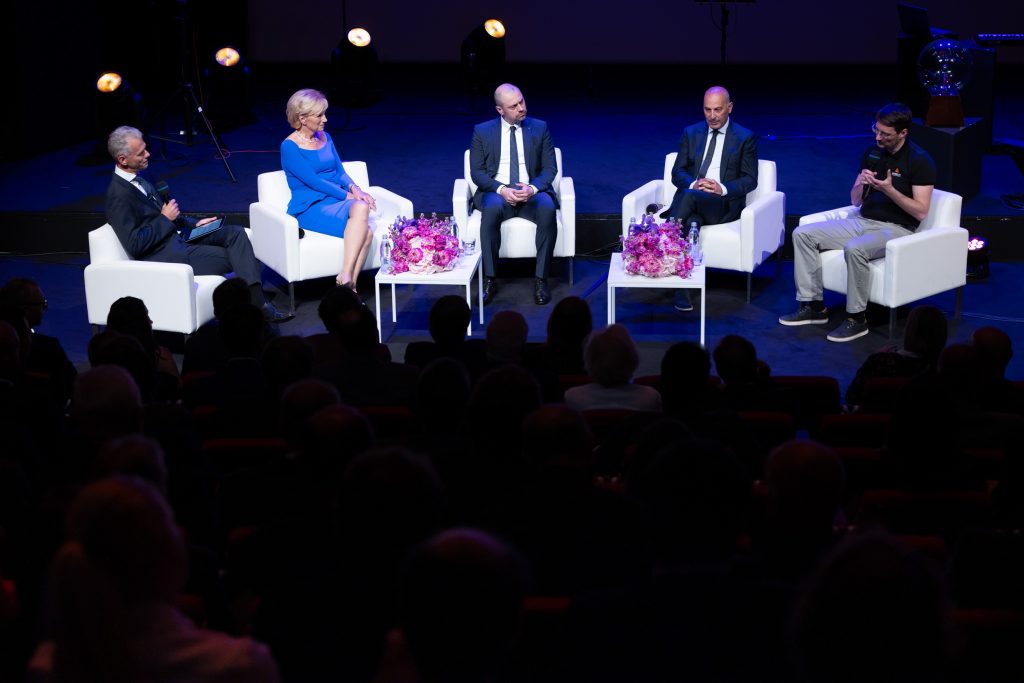
The present and future of life with artificial intelligence
The professional part of the event began with a lecture by prof. dr. Vitomir Štruc from our faculty, who defined the concept of artificial intelligence, presented its development over time and the faculty’s involvement from the very beginnings in the 1960s, and shed light on modern machine learning algorithms and their use in computer vision, biometrics, text analysis, energy, as well as in robotics. A round table followed, where experts Dr. Tadej Justin from Medius, dr. Maja Škrjanc from the company QLECTOR and from the Jožef Štefan Institute, and prof. dr. Andrej Kos and assoc. prof. dr. Žiga Špiclin.
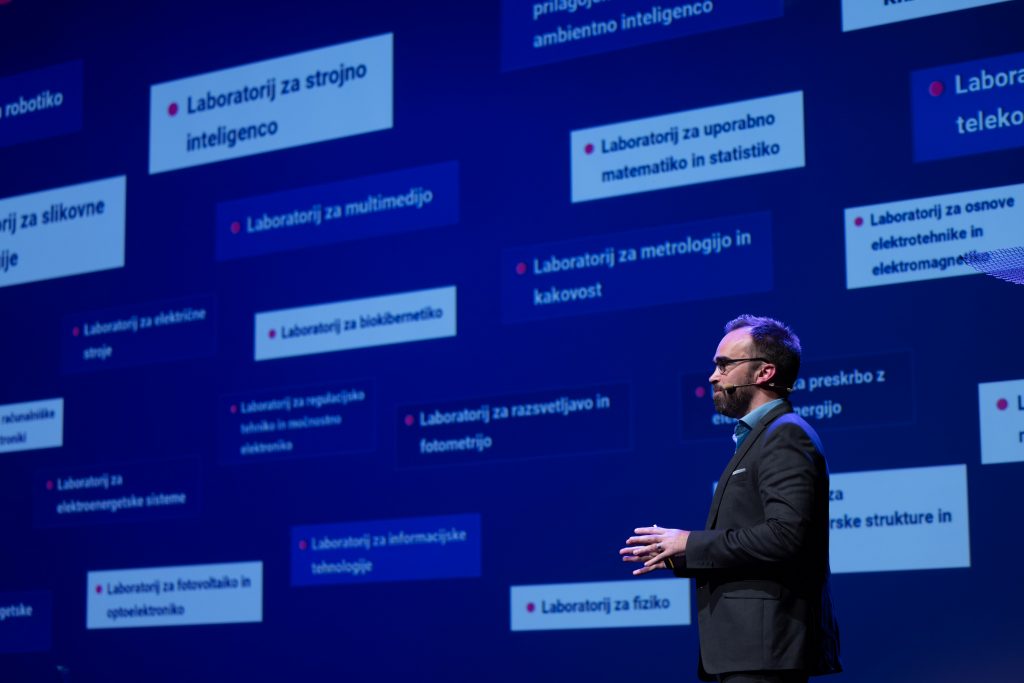
The useful value of UI in many areas
According to Maja Škrjanc, UI presents the greatest opportunities in the field of medical diagnostics, the financial sector and the management of large systems such as energy networks, transport and industrial production. dr. Tadej Justin added that the company Medius develops solutions for clients in the fields of energy and insurance and emphasized the importance of quality data, without which UI cannot exist. With tools based on UI, we can also help each other in profiling the attackers of cyber attacks, which is what prof. dr. Andrej Kos. Assoc. prof. dr. Žiga Špiclin presented how medical images of patients with multiple sclerosis are analyzed with the help of UI, which would require radiologists much more time. In the field of medicine, we manage a large amount of data, which can be analyzed quickly with the help of UI and, based on the results, predict the further course of the disease.
The future of education with artificial intelligence
UI undoubtedly has a great influence on various aspects of education, which requires continuous education of personnel, both older and younger. Primary and secondary school students and students already use the ChatGPT tool to solve assignments, laboratory exercises and exams, which makes adaptation necessary on the part of professors and lecturers. “The content that we now prepare and give to professors will be prepared with UI and accessible online, which will change the role of professors. We will have to become promoters of creativity, multidisciplinarity and critical thinking,” said Prof. dr. Bin. Assoc. prof. dr. Špiclin encourages the use of UI in education and sees language models such as ChatGPT primarily as an additional tool that we can use to help each other, similar to how we used calculators in the past. Here, Maja Škrjanc drew attention to the paradigm that young people are more adept at using digital tools, but in order to successfully evaluate UI results, they will have to cooperate with older people who can offer knowledge, many years of experience and critical judgment. The speakers agreed that in the field of education and research it is extremely important to invest in top-quality equipment that enables laboratory and experimental work.
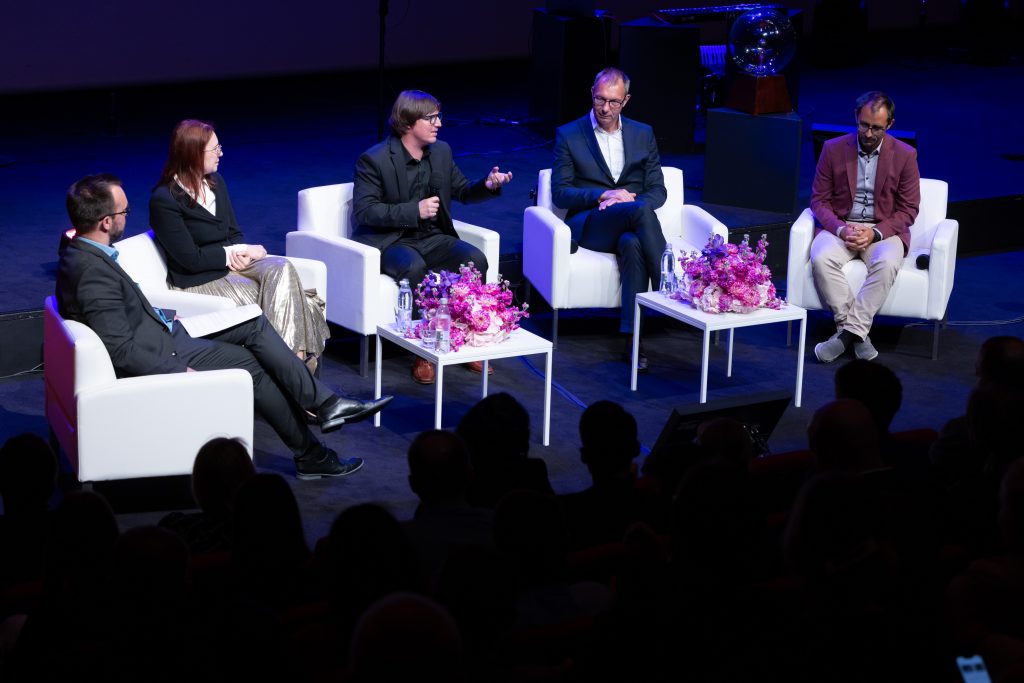
The impact of UI regulation on business and innovation
The round table also discussed the legal framework for commercial solutions based on UI. The European Union recently voted the Artificial Intelligence Act, which establishes a system of risks and bans some applications altogether. Opinions about regulation are divided, as it is, on the one hand, socially responsible regulation that is supposed to prevent abuses, but on the other hand, it can limit economic freedom. “The European Union is currently looking for a balance between ensuring data protection and maintaining competitiveness, while pursuing good practices,” said Dr. Škrjanc and emphasized the importance of multidisciplinary cooperation in establishing regulations.
Elektra+ awards ceremony
The official part of the Symphony of Electrical Engineering+ event ended with the awarding of awards to business partners who cooperate intensively with the faculty and make a significant contribution to the development of electrical engineering. The Elektra+ awards for comprehensive and successful cooperation were presented to the recipients by the dean of UL FE prof. dr. Marko Topič, and they were received by the Telekom Slovenije company, the Milan Vidmar Elektroinštitut and the IPPR agency.
By promoting innovation and cooperation between the academic sphere and the economy, the Faculty of Electrical Engineering of UL lays a solid foundation for the further development and implementation of advanced technologies in Slovenia. With a clear focus on the challenges and opportunities that artificial intelligence brings, they remain committed to their mission of education, research and cooperation, which was repeatedly highlighted at the event as a key factor for the future of technological progress and sustainable development of Slovenia.
The event of the Symphony of Electrical Engineering+ was enriched with musical and visual performances by Janez Dovč, who paid tribute to the great inventors Nikola Tesla and Albert Einstein in his points. A relaxed gathering followed, during which the participants of the event continued to exchange ideas in a pleasant atmosphere.
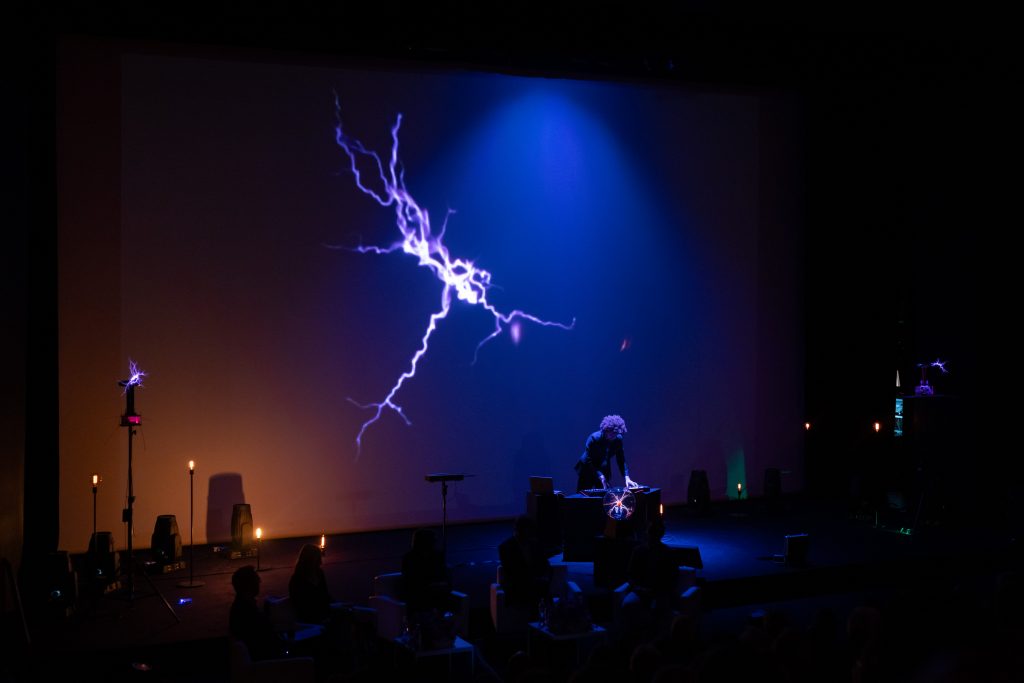
Photographer of the event: Željko Stevanić/IFP
